Humble Monthly Bundle: February 2021/2016
This month was a weird one, for a lot of personal reasons, so the Humble Monthly Bundle post for February is quite late. Hopefully that won't happen again, but I wouldn't be surprised if it does. This project involves going thru a lot of games.
I strongly considered cancelling this project, just cause of how many games per month this project entails. But the thing is, I've found some of my favorite games ever in Humble, as you'll see below. So I do think it's worth keeping around for now.
With that preamble out of the way, here is a rundown of the games in Humble's monthly bundles for February 2021 and February 2016, ranked from best to worst.
HUMBLE FEBRUARY 2021 BUNDLE
1) Werewolf The Apocalypse: Heart of the Forest
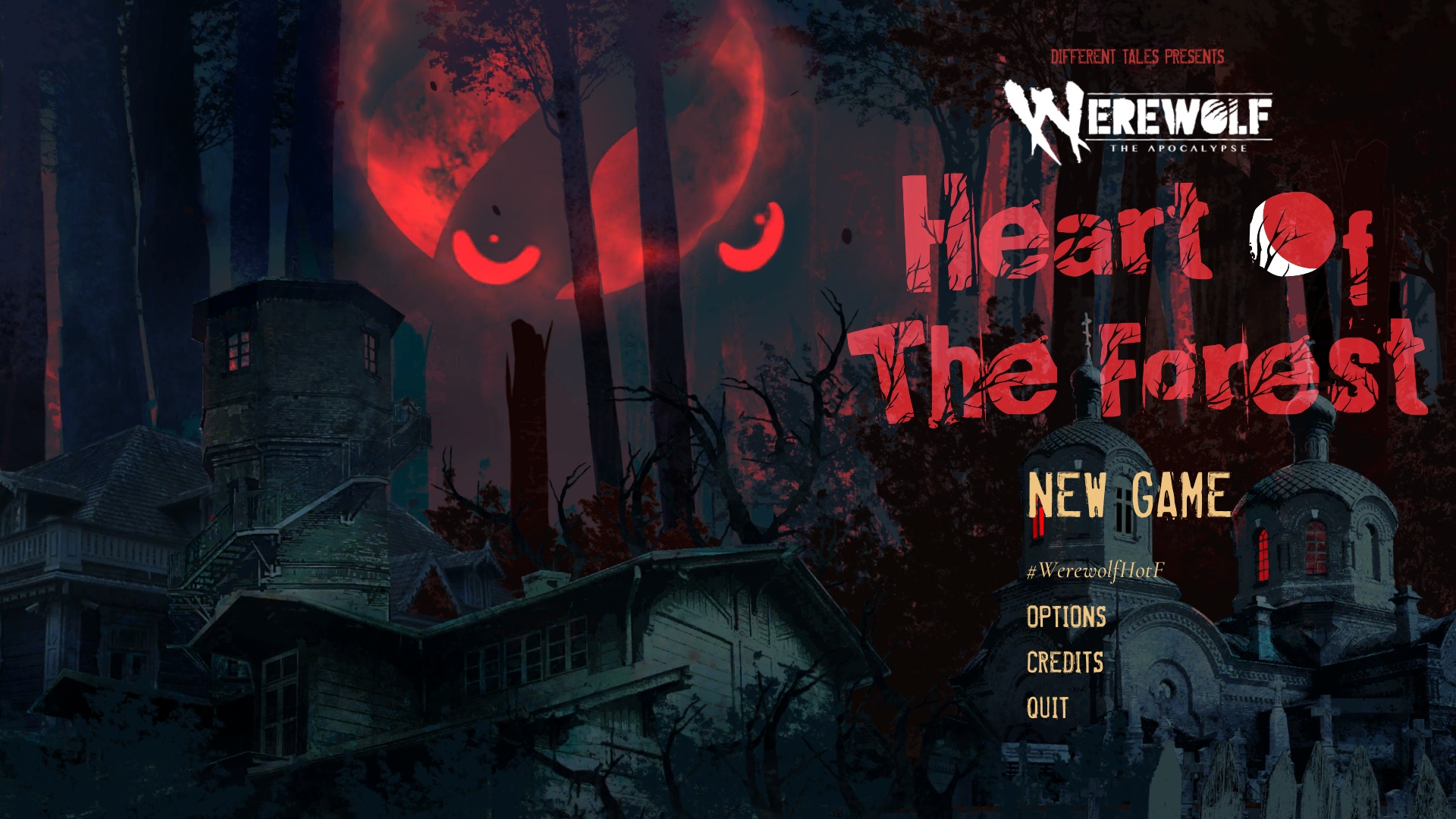
This is the first game in any 2021 bundle that I've played thru to completion, just to give you a sense of how much I liked it.
Werewolf: The Apocalypse is a tabletop roleplaying game in the same universe as Vampire: The Masquerade. Both are storytelling-heavy systems in which you play as a member of a secret clan of monster people. These games are SO much more narratively-focused than Dungeons & Dragons that it makes a lot of sense to translate these systems in a videogame sphere to something more linear like a visual novel.
Last month, VTM: Shadows of New York mixed good art and deep writing to create a rich visual novel experience. This month, WTA: Heart of the Forest is doing the same thing, but a little bit better.
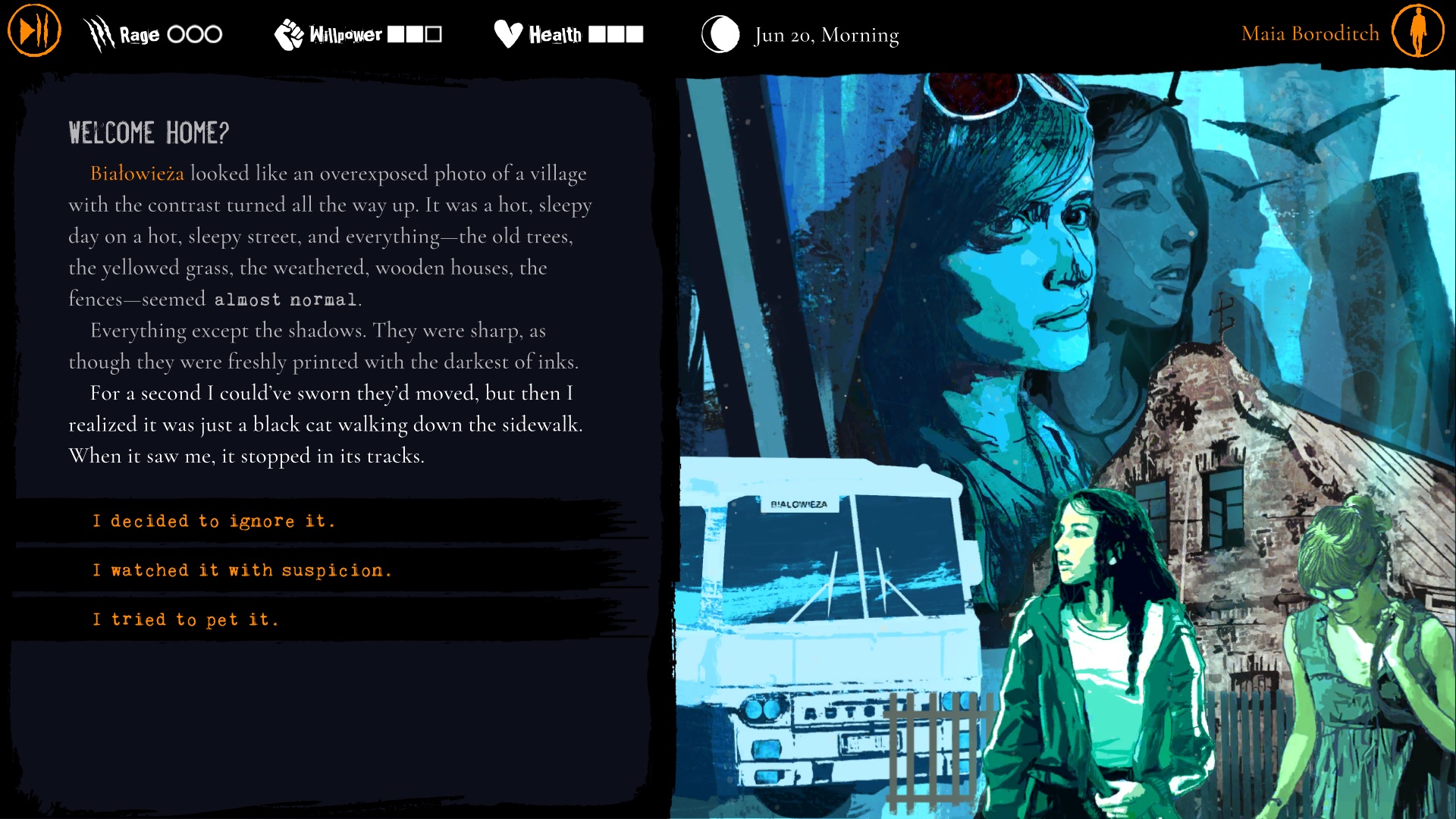
In both games, you play as a queer girl trying to find herself. Whereas in VTM: Shadows of New York you played as a down-on-her-luck investigative journalist, here you play as a girl just trying to find her heritage in the depths of Poland. Along with her friend, she travels to a town she's seen in her dreams, and the mystical forest and strange townspeople slowly help her understand her nature as a newborn werewolf.
One of my critiques of these visual novels is this: in translating a robust tabletop roleplay system, there's a lot of ideas and definitions the game needs to inorganically teach you. Shadows of New York did this by throwing definitions at you every couple of minutes, but Heart of the Forest solves this problem rather elegantly with its best gameplay decision: an honest-to-Gaia in-game character sheet.
As you progress thru the game, the decisions you make slowly build your character sheet. Your relationship with various characters is recorded, as are all your stats. Depending on what actions you take, you can gain or spend points in all sorts of areas.
This also means that the game *feels* more interactive than Shadows of New York. I'm unsure how much your choices actually change the story, but the writing tweaks itself to what your character cares about and how they're feeling.
I dunno, something about the Werewolf setting, which is very much about being an environmental activist, resonates with me more than the Vampire setting, which is more generically about being part of a monstrous secret society. This game really grabbed me, I loved the main character I built, and it was a treat to see this story to the end. I'd happily play a sequel.
2) Trine 4: The Nightmare Prince
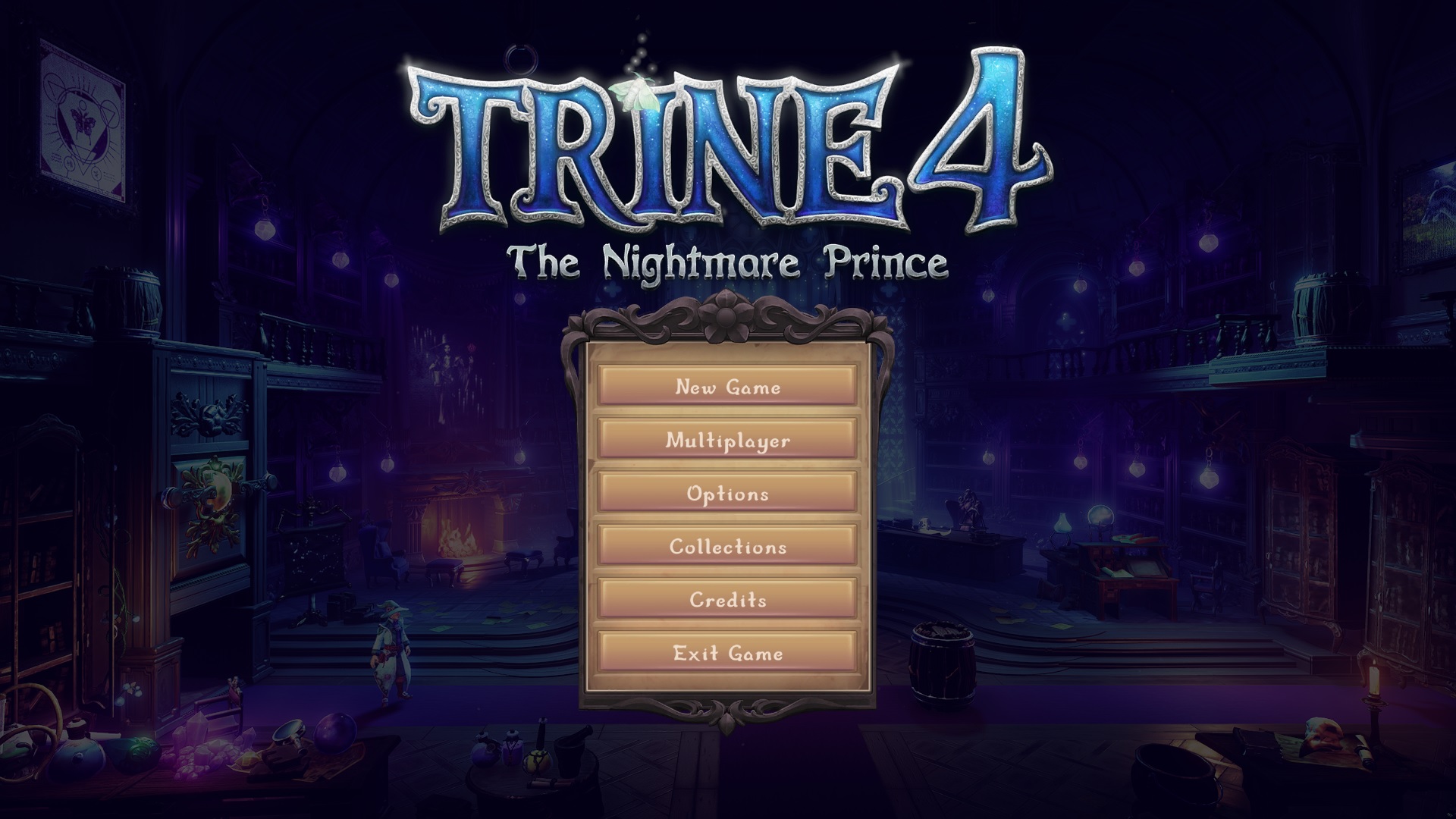
I'm sort of surprised they're still making Trine games. Trine has been around since the beginning of the indie boom in the late 2000s. It's a series of 2.5D puzzle platformers (that is, 2D platformers where the grapics are rendered in 3D). The third installment supposedly took a detour into 3D platforming, but after that was received poorly, Trine 4 is back to the 2.5D formula the series began with.
This is the only Trine game I've ever played with, so I can't really get a sense of how similar or different it is to the other games, or if the narrative really needed a fourth installment. Certainly the plot reads as a standalone "our established heroes must embark on a one-and-done quest" kind of thing.
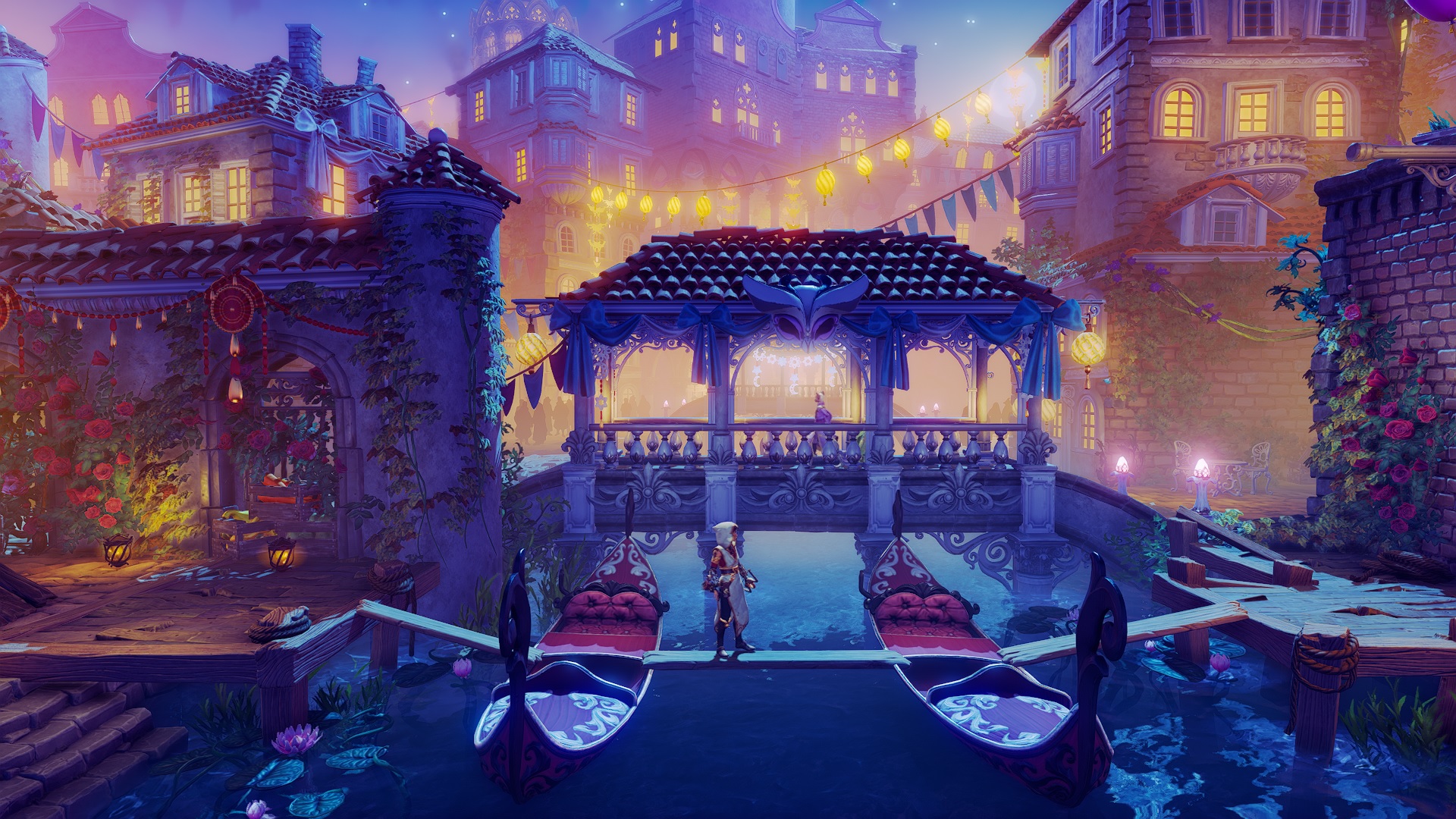
All I can tell you is that this game plays very well. The puzzle platforming is not terribly difficult, but it is very engaging. I keep wanting to play just a little bit more to see what's around the corner.
And it is a BEAUTIFUL game. Seriously, the art design in this game is absolutely stunning. Even if the game is a somewhat shallow experience, it's a very well-made shallow experience.
3) Train Station Renovation
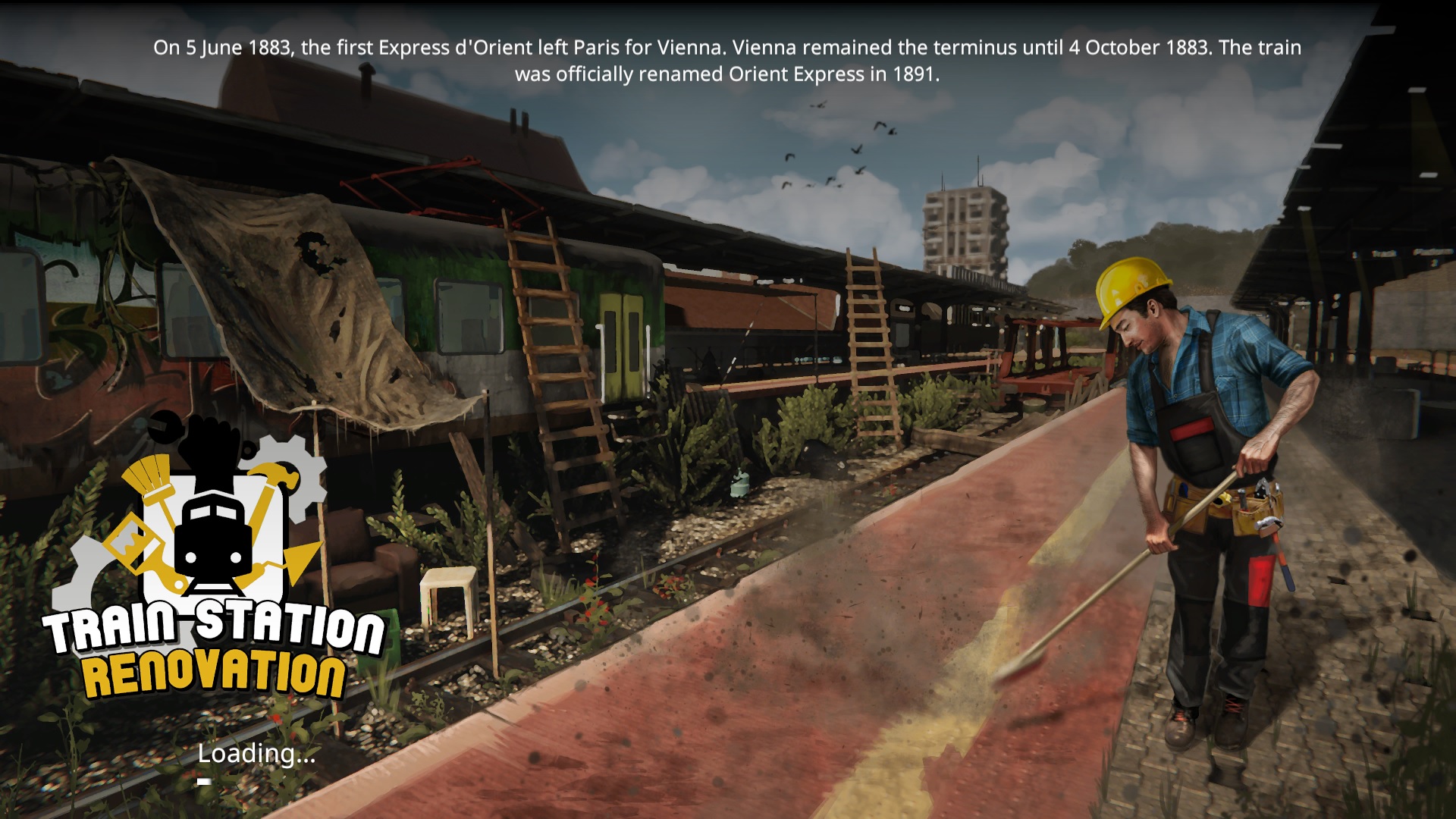
What is it with me and job simulator games? Train Station Renovation is a game in which you go to old decrepit train stations, and you clean them up. That's the whole game, and it rocks.
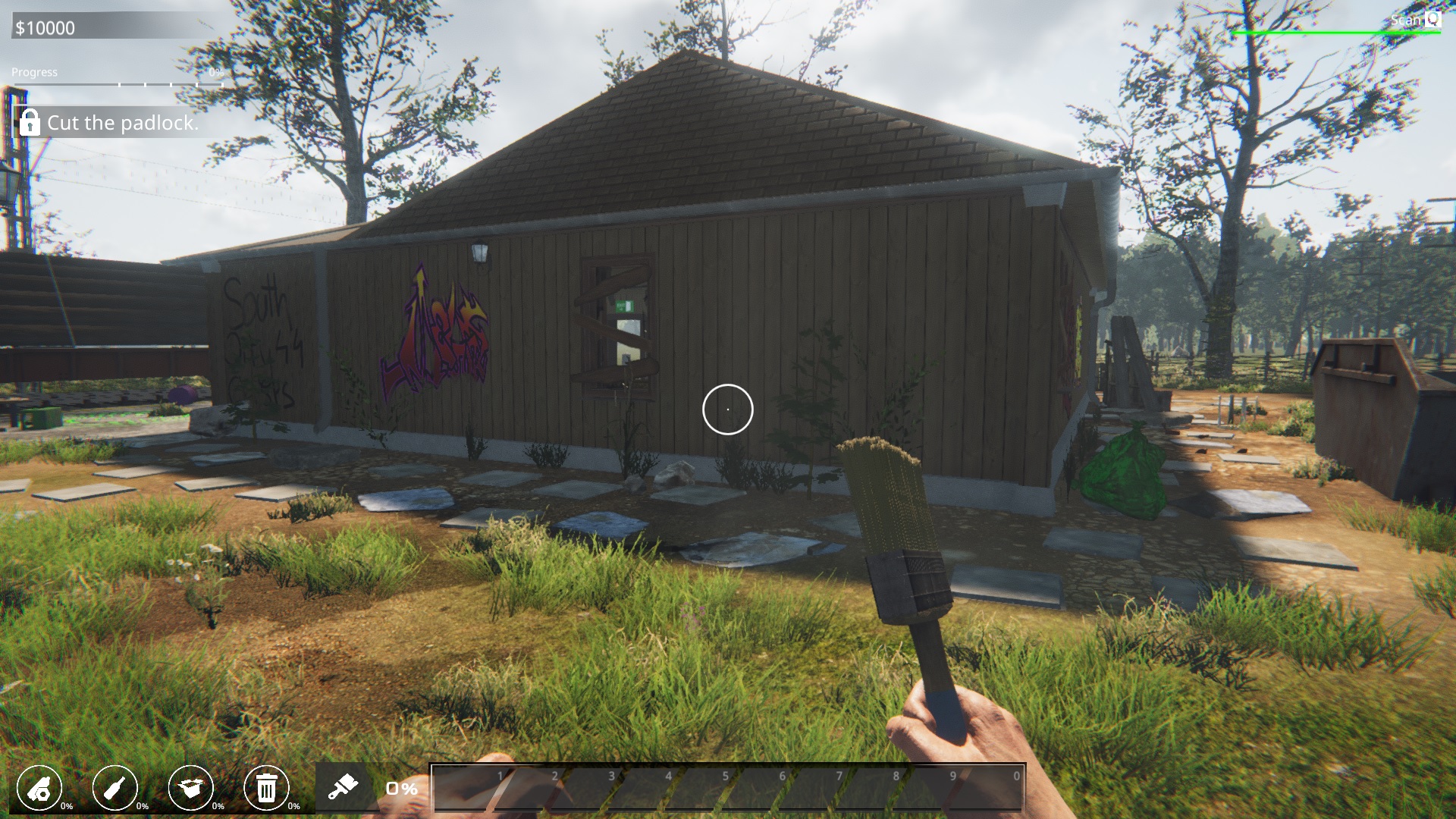
It's not as good as PC Building Sim, for a few reasons. The music's not as good, for one thing, and in a long meditative game that's an important factor. Also, the process of cleaning up a train station is somewhat inherently longer than that of cleaning up a PC, which means that I don't really see the game progress and evolve here. A single game session of Train Station Renovation will probably include only one station, whereas a single session of PC Building Sim could see me work with at least half a dozen computers.
But ultimately, none of that matters too much, because the gameplay loop of Train Station Renovation is just inherently deeply satisfying. It even lets you customize the look of your train stations! What more could you really ask for?
4) Co-Open

This month's Humble Original is a fascinating little game. You play as a small child, and your parent has brought you to the grocery store. Your job is to collect and purchase groceries, by yourself, for the first time ever. Once you've selected seven items, you can bring them to the register and pay for them. Then your parent will pick you up and take you home.
You'd think there'd be some kind of structure to the game, maybe a list of groceries you're supposed to collect. But nope. The dialogue in the ending cutscene will change depending on what you've bought, but no matter what your parent will be pleased with your choices. What you buy is completely up to you.
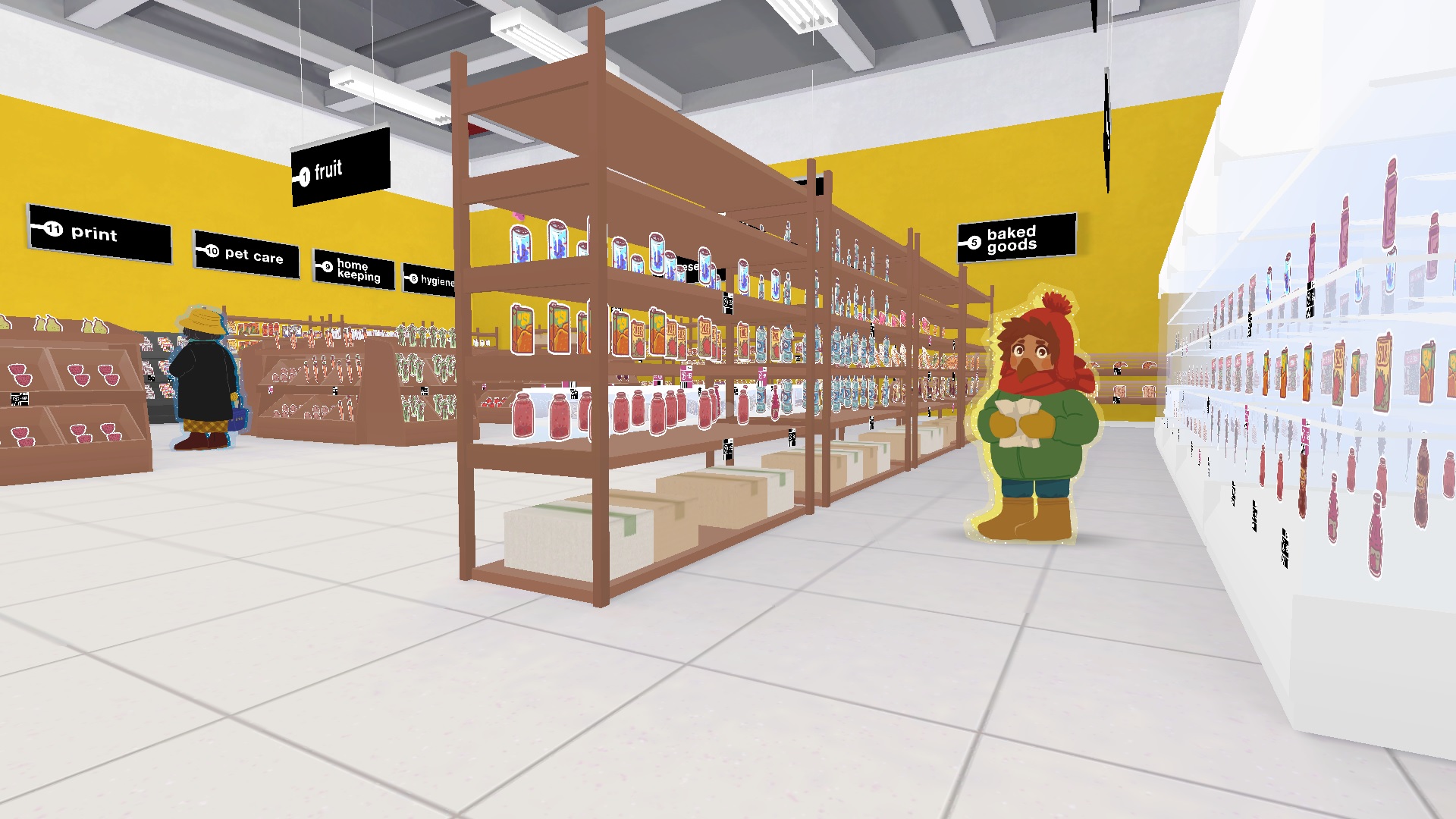
Surely that can't be the whole game, I thought. So I booted it up a second time. And it turns out I was right! There is a little bit more to the game. But not much, and it's not explicitly structured. If you wander around, you'll find other characters perusing the aisles. You can also find other secret areas, both inside and outside the building. All of these give you other characters to talk to, and little sidequests for you to try. You'll get a little reward to collect if you complete them. And as soon as you're done, you check out at the grocery store and your parent will pick you up.
There's really nothing pushing you to play more, besides the "collections" screen in the main menu that shows you all the achievements you've unlocked. It's just a cozy, well-made little grocery store simulator, with just a bit more exploration and sidequests than you might expect. And I think it's really sweet. You really feel the wonder and overwhelm of being a small child in this situation.
5) Iris & the Giant
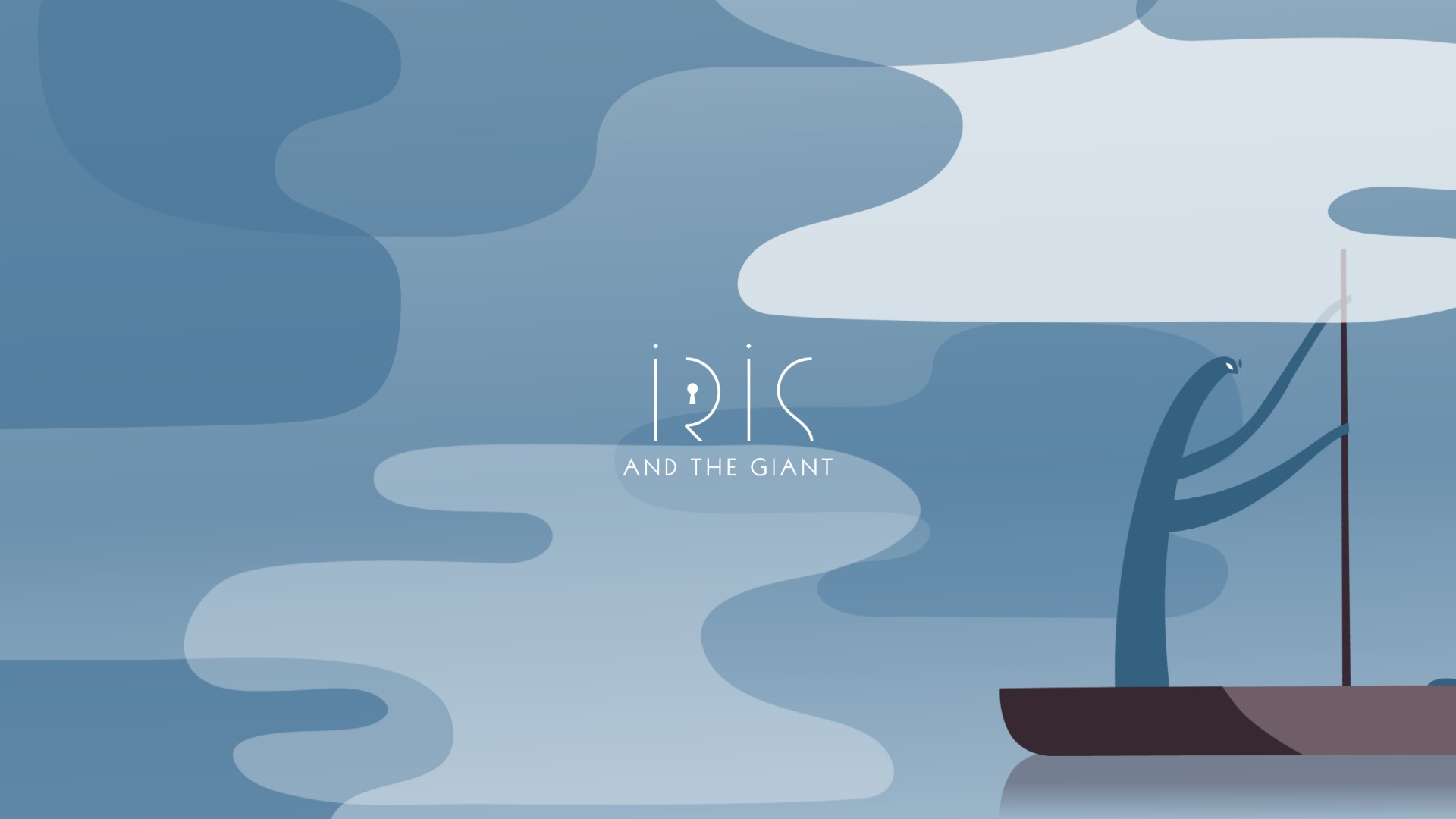
A game in which you proceed thru the Greek underworld, killing monsters, based on randomly generated powers. No, this isn't Hades. It's a sweet little game called Iris & the Giant, in which you play an outcast high school girl who battles her way thru leagues of warriors in the underworld.
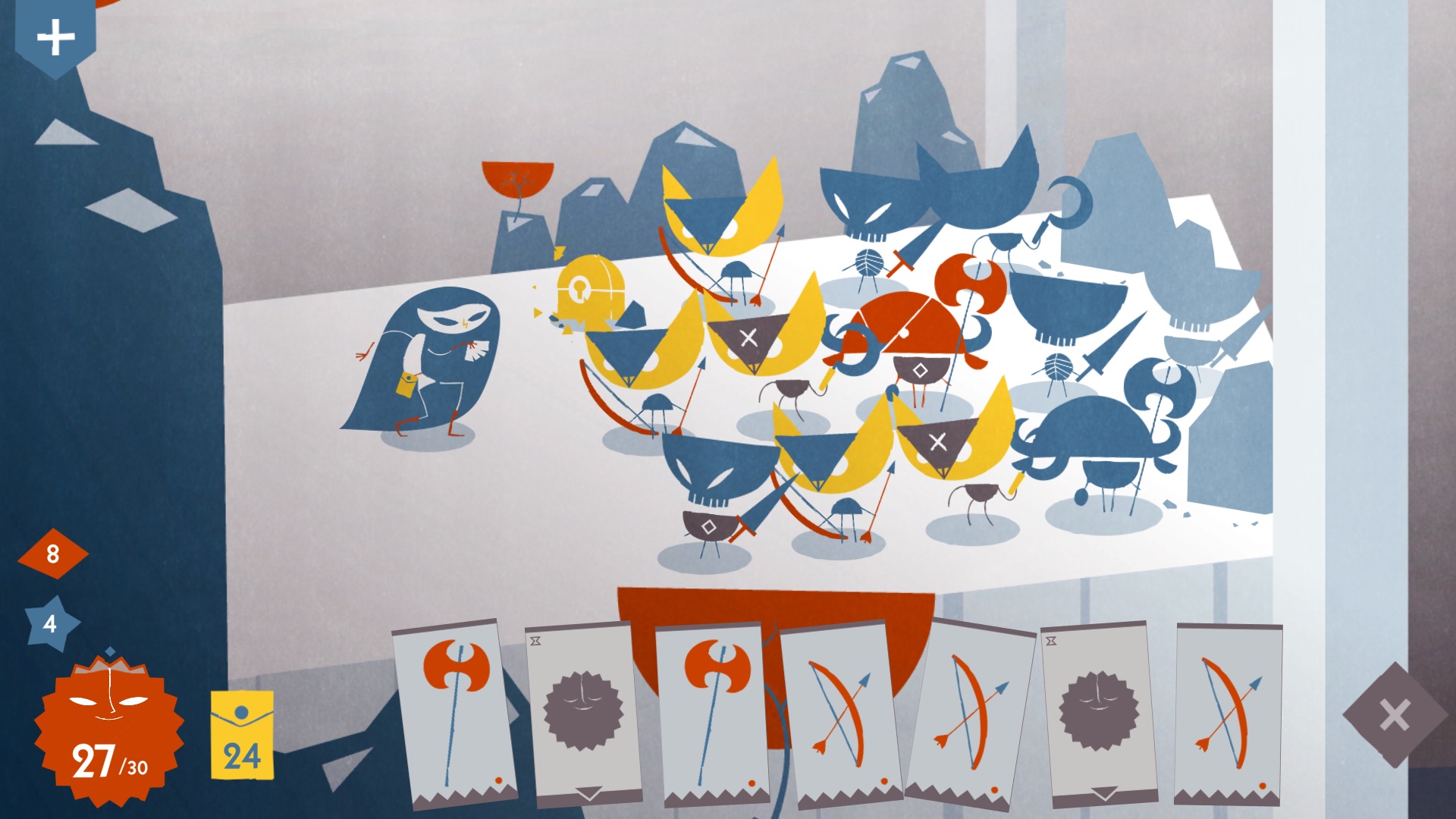
The gimmick here is that you can only do actions from a deck of cards that you draw randomly from: sword, shield, bow and arrow, axe, health pickups, and more are all drawn from your deck of actions. I THINK this is sort of similar to Slay the Spire?
It's very very simple. But this works. Other than the flavor, the other way this game parallels Hades is that you get little bonuses each time you play that make the game a little easier each time. I'm always curious what else I'm going to find around the next corner, and so I keep coming back.
6) Outward
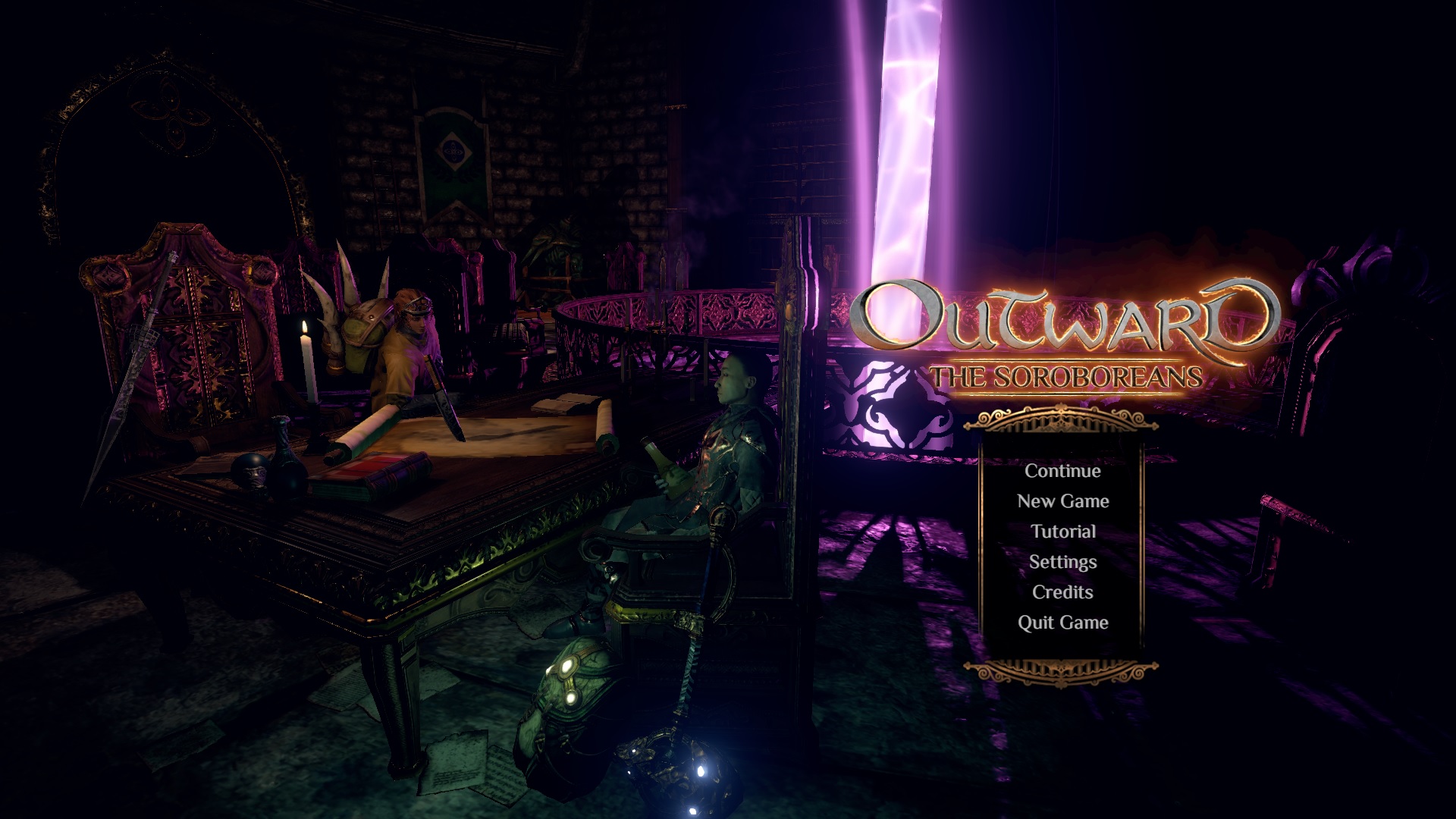
This is a very odd one. I'm not sure I'd call anything at this position or below a really good game. But Outward is absolutely fascinating.
Outward is a third-person fantasy RPG. But at some point, the developers of this game said, "what if we also made this a survival game?" And then they leaned really really hard on that aspect of the game, making Outward an odd fusion.
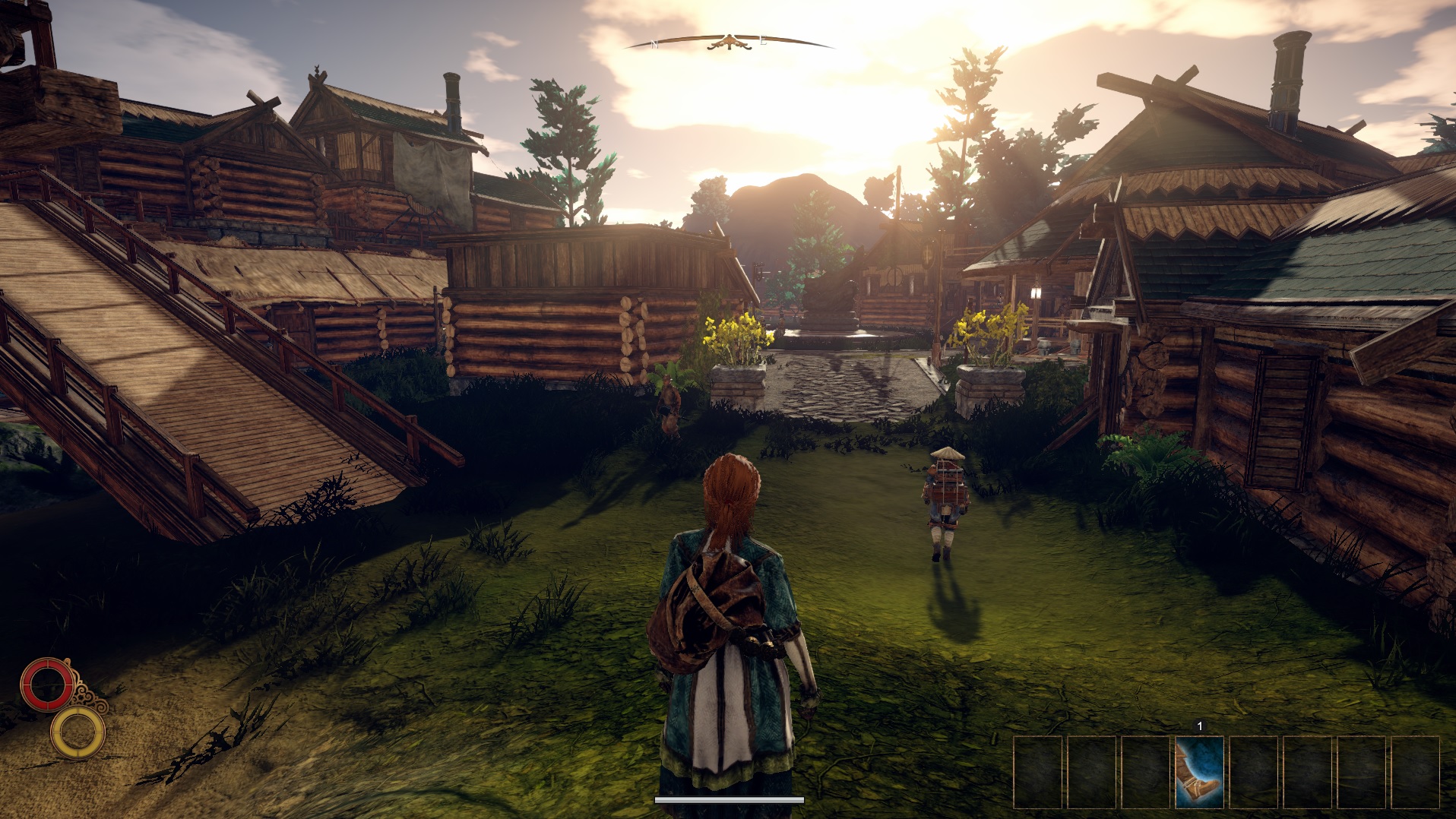
I'd almost call Outward a roguelike. On my first playthru, I woke up with the villagers mad at me and threatening to take away my lighthouse home unless I paid them off. So I started wandering around the village looking for supplies, and then I fell off a cliff. "Okay," I thought, "surely this game has autosave, and I can try again." Nope! I woke up in an inn, having slept off my injuries for several days. When I returned to my lighthouse, the window for that quest had passed, and I'd already lost my home.
Further playthroughs were really similar. I'd try to do something, encounter some strange catastrophe that completely derailed my plans, and then the game would just continue and I was expected to muddle things out. You get to a point eventually where it just makes more sense to start over, but every time I played I learned a little bit more about how the world worked, and where important things were on the map, and stuff like that.
I don't think this is very good game design. It's very frustrating to play at times. But I've never played a game quite like this, either, and I sort of have to respect this game giving me a singularly unique game experience.
7) Valkyria Chronicles 4
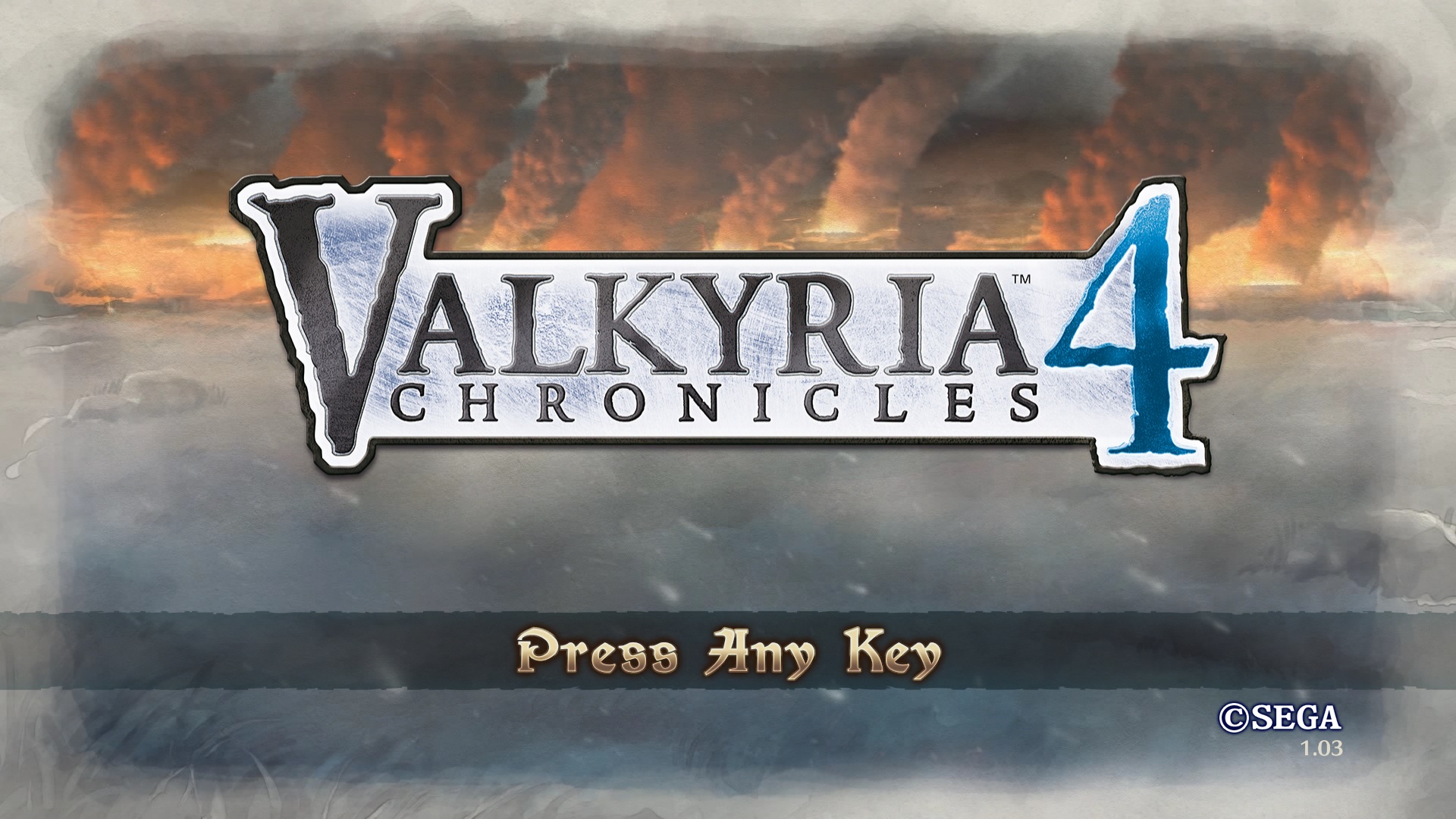
This series wants to be Fire Emblem so fucking bad, y'all.
I played a bit of the first game years and years ago. (It's actually part of the first-ever Humble Monthly in November 2015.) It's a turn-based tactics game like Fire Emblem, but the gimmick is that every time you move a character, the game turns into a third-person shooter, and you can freely move and shoot wherever you like.
Lo and behold, about a decade after the first game's release, Valkyria Chronicles 4 is essentially the same game. (Games 2 and 3 came out for the PSP, which means almost nobody played them.) This is effectively a direct sequel to Valkyria Chronicles 1, and it's a standalone story either way, so its connections to previous games don't really matter.
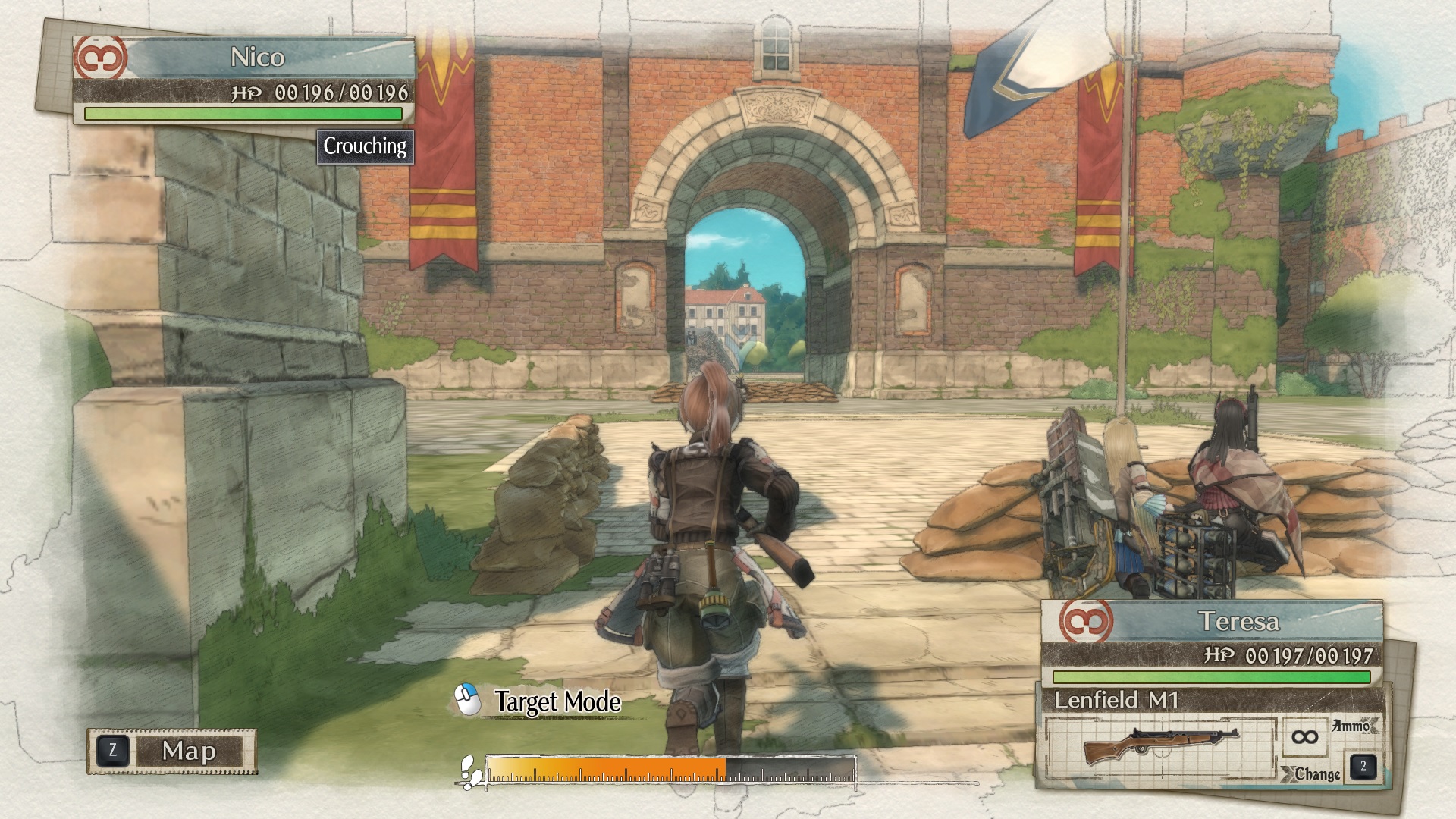
I had to *struggle* to get past the cutscenes. The game takes place in an anime knockoff version of World War II, which is already cloying enough. The characters are all stereotypes. But here's the worst part: Valkyria Chronicles often has multiple cutscenes in a row, and between cutscenes it will boot you back to the main menu and force you to select the next one. And then confirm that yes, I'm really sure I want to watch it. It's exasperating.
I'm surprised this game ranked this high. But once you actually get into a battle, if you can ignore the story and characters, there's some interesting and decently fun tactics experiences. I threw all my soldiers at a challenge and got a lot of them killed, and then had to hold out while I waited for reinforcements. That was a tense little sequence, and it's the only situation in which VC4 provided any sort of unique experience.
8) Boomerang Fu
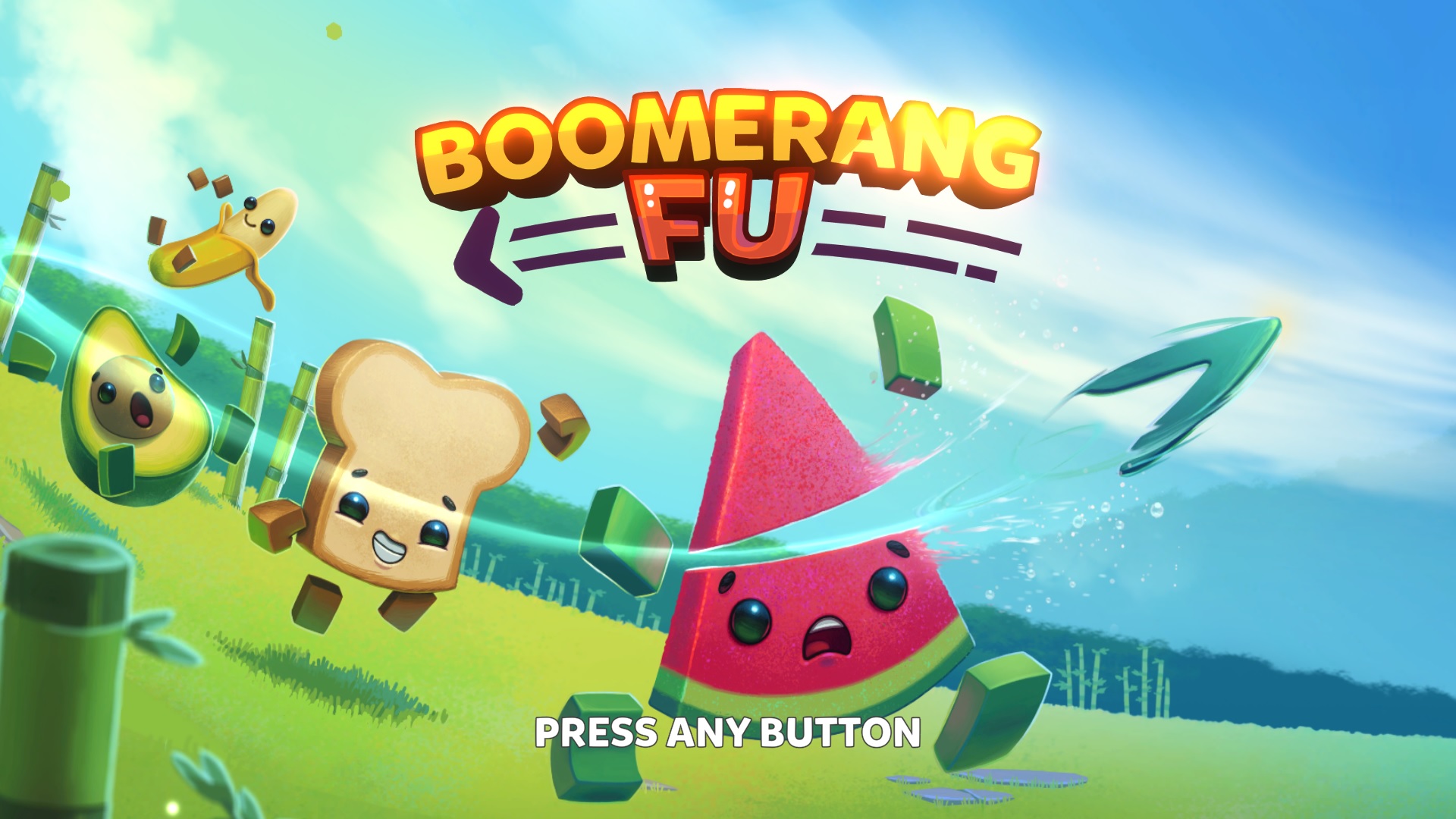
This is a pretty decent party game. In Boomerang Fu, you play as a living piece of food, and you dash around a small arena trying to kill everybody else with boomerangs. There's various powerups and various maps, and if you win a certain number of games, you win the match. That's the whole thing.
Moving around, using the boomerang, picking up powerups... at a basic level, playing this game feels pretty good. It's frantic, but not too out-of-control. There's a lot of maps and powerups, which gives the game a good sense of variety.
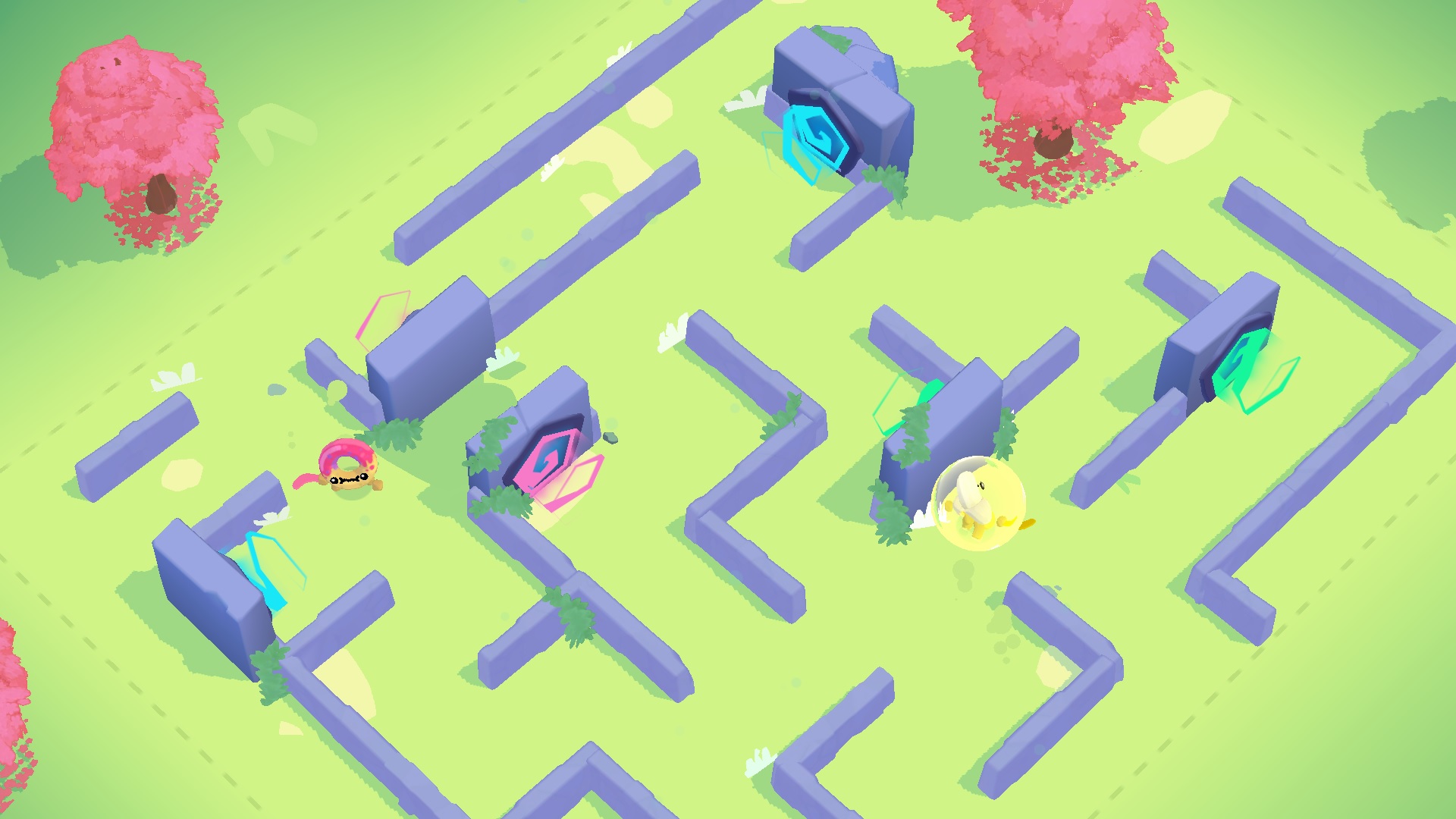
Here's why the game ranks so low: if you don't play this game using the boomerangs as boomerangs, the game breaks. I was about equally matched with my CPU opponent on my first playthru, and the CPU ended up winning. But I noticed that while I would haphazardly throw my boomerang around and then go running for it, the CPU kept running up and slicing my throat.
So on a second playthru, I tried using the boomerang as just a generic melee weapon, like a sword or knife. And lo and behold, that worked way better. Maybe cause there's no way implemented to aim or lock-on with the boomerang, it's sort of frustrating to use as a throwing implement, and there's a lot less x-factor in a big brawl if you just run around and stab people.
9) Lovecraft's Untold Stories
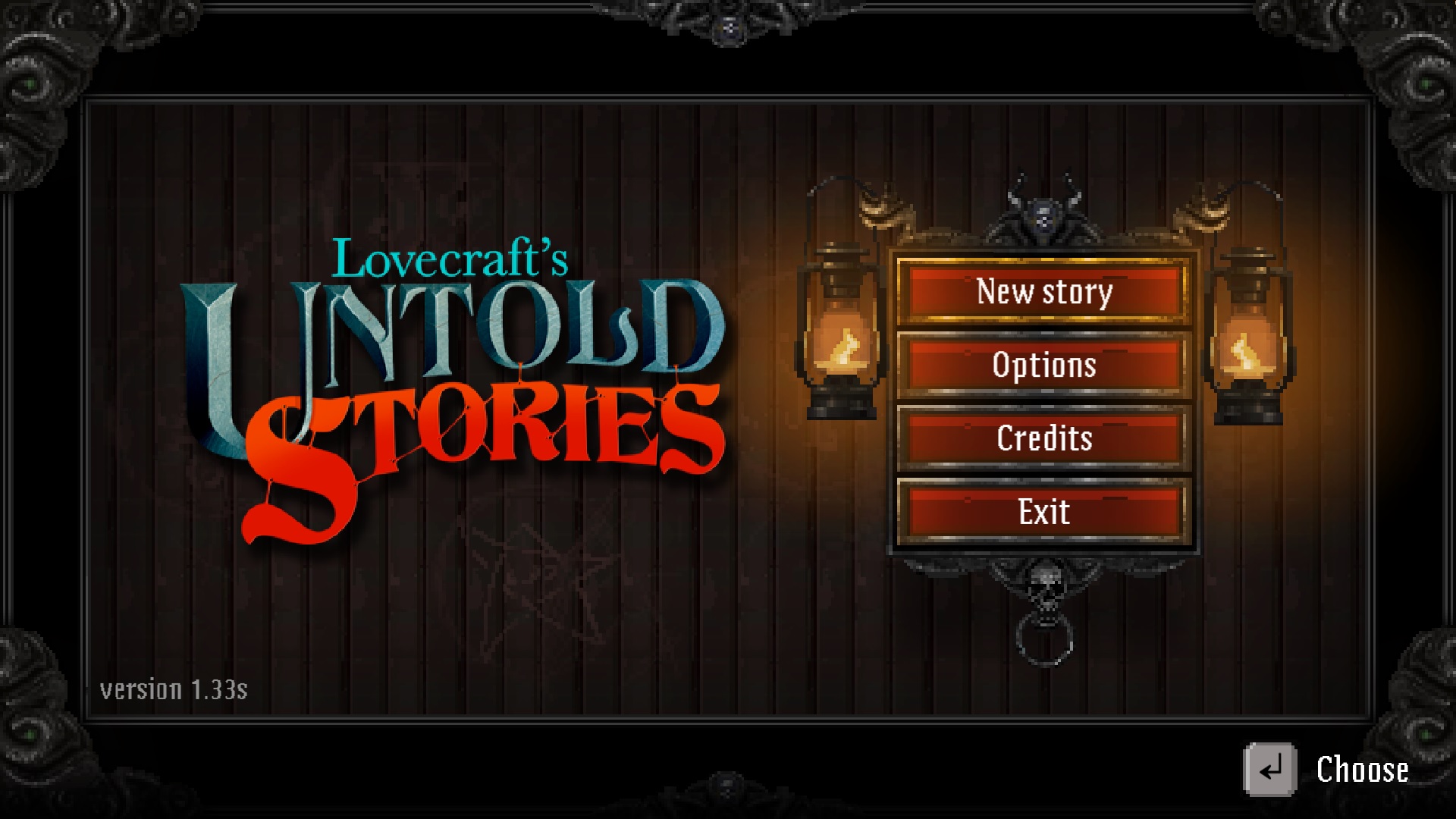
What if Spelunky was a top-down 2D exploration game, and also it was themed around Cthulhu cultists and other Lovecraft references? Well, here's that extremely specific mashup, I guess.
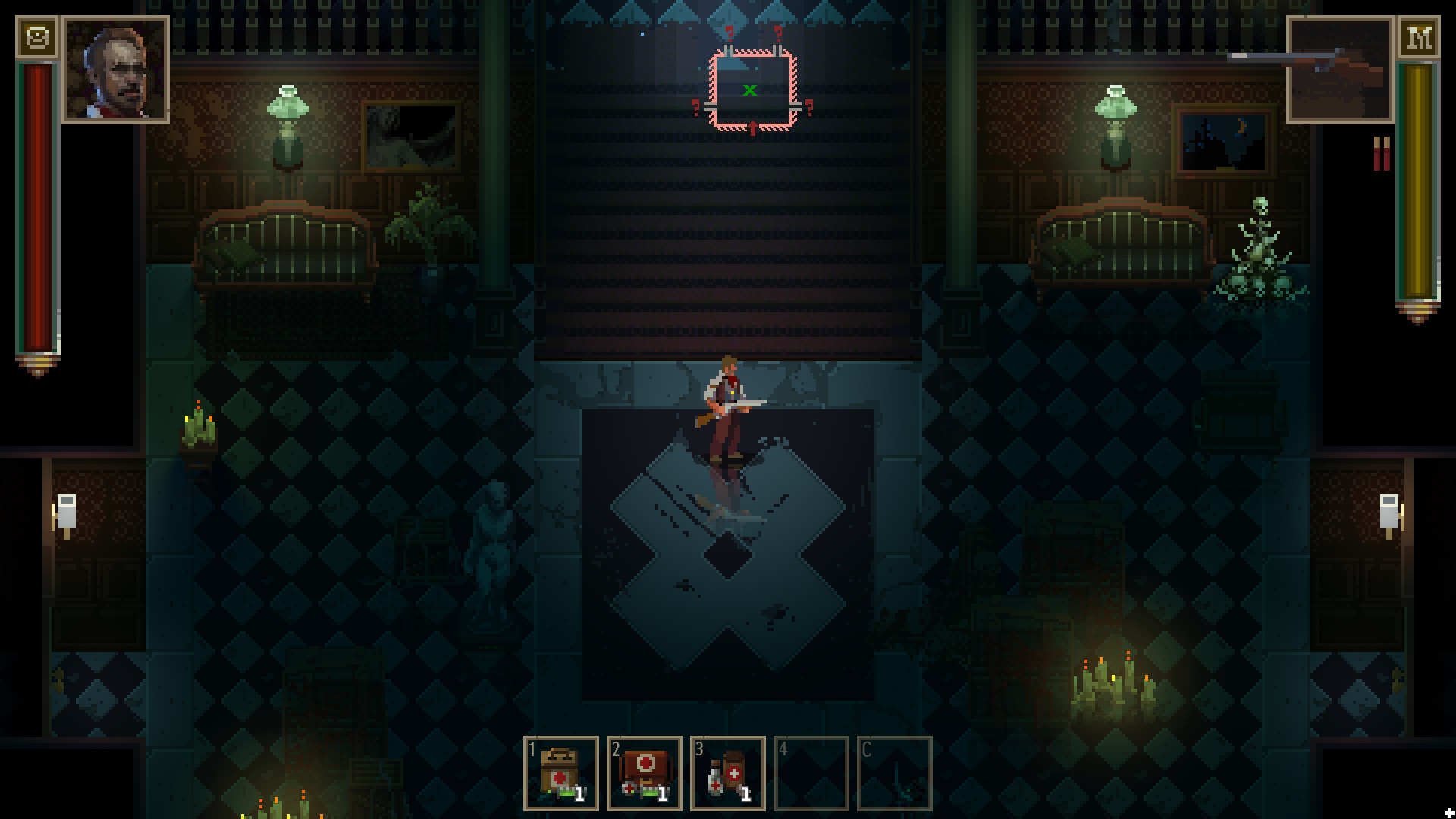
In Lovecraft's Untold Stories (not to be confused with Untold Stories, a completely different game), you play a character investigating a house full of cultists. The map and items randomize each time, so part of the challenge is finding your way around the new layout each time. Try not to look at too many weird things and lose your sanity, try not to die from the cultists throwing spells at you.
There's something inherently intriguing to a randomized exploration game, and that's why this game's so high on the list. I don't particularly care for the game's theming, but I am somewhat intrigued by the basic gameplay loop. Not enough to play too much of it, tho. Spelunky never really grabbed me, either.
10) Valfaris
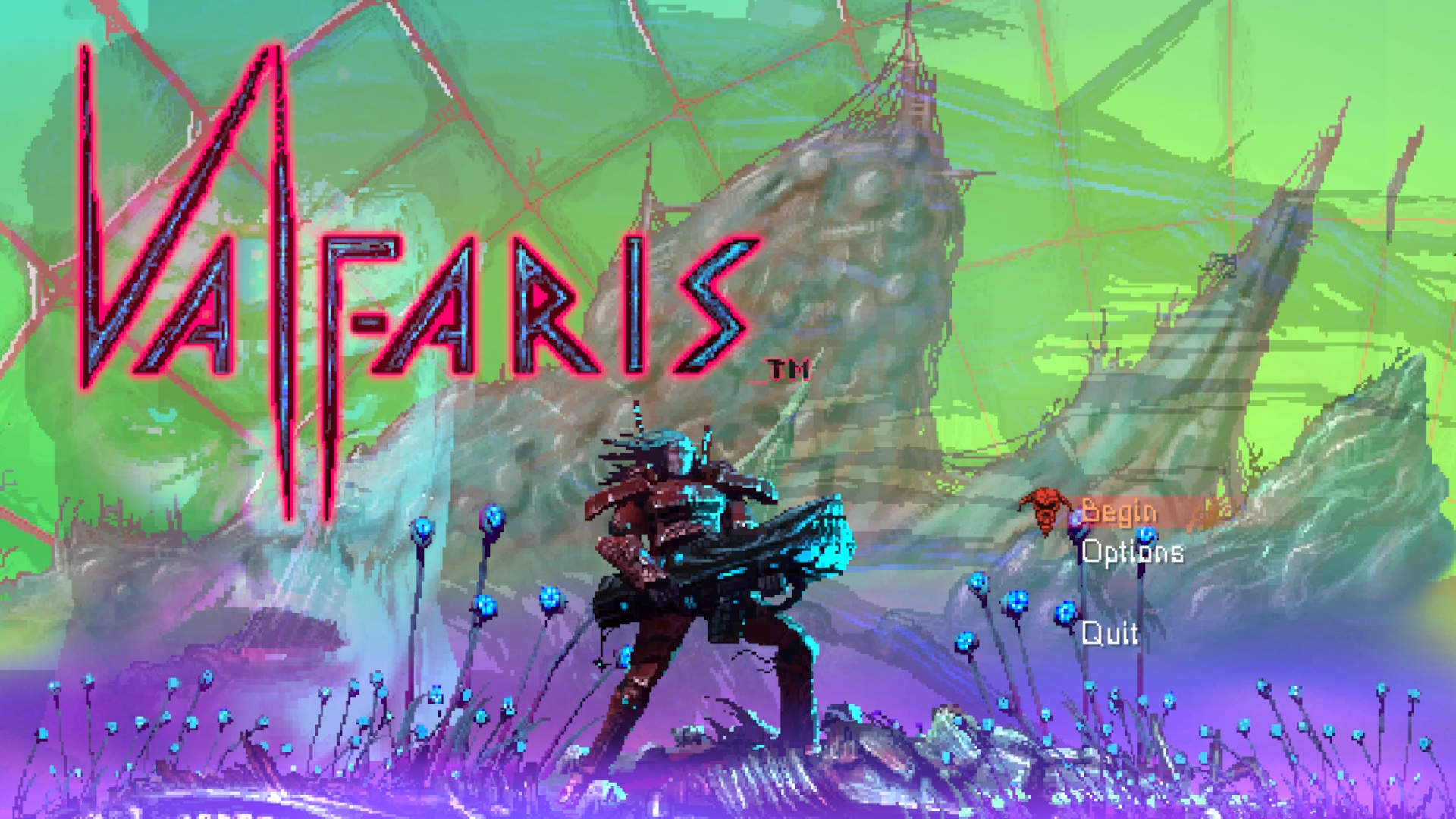
Valfaris is a Doom-style, heavy metal inspired sidescrolling shooter, in which you play... a guy on a strange landscape shooting monsters and wolves. Occasionally he gets a new weapon and plays air guitar on it for a few seconds.
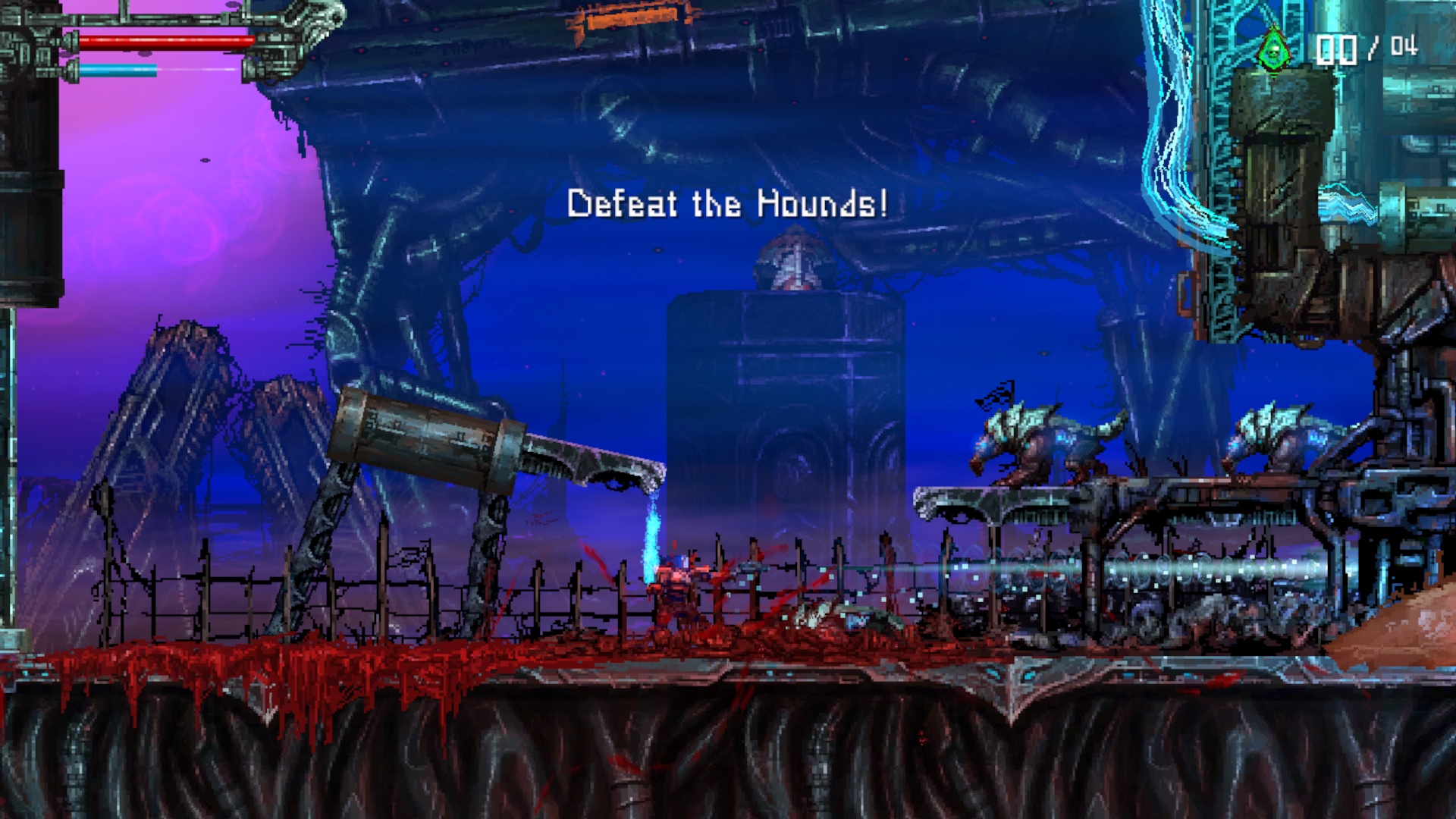
I don't really get what the story of Valfaris is trying to do. The feel, tho, I understand perfectly. It's a game that wants you to feel badass as you wander around and shoot strange and horrifying monsters. The pixely graphics, from the sprites to the landscape, all have this odd pulsing movement to them that makes the whole thing feel like a surreal acid trip. Not a whole lot to this game, but hey, if this is your bag, it's here.
11) The Wild Eight
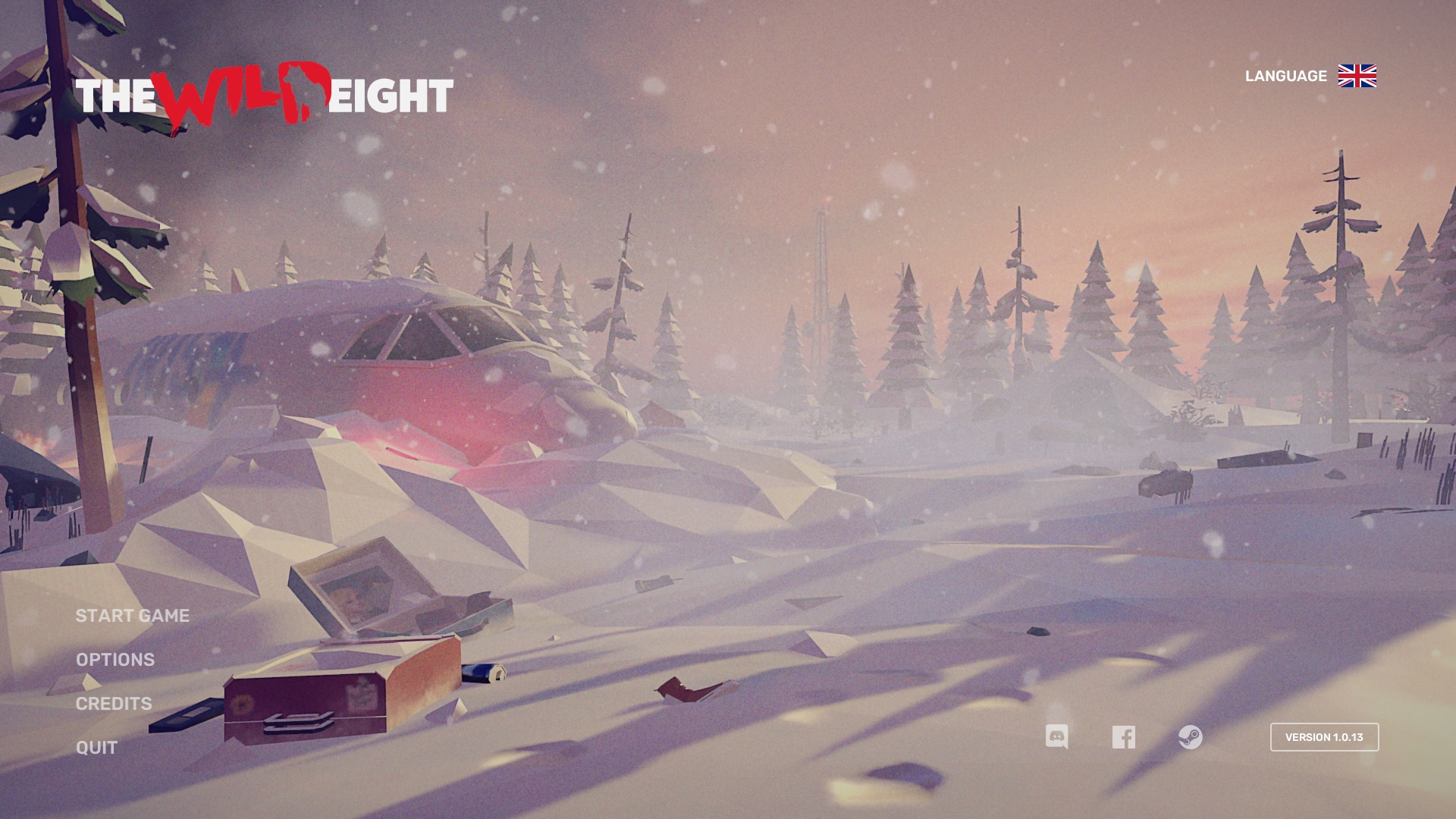
I can't really say anything is specifically wrong with The Wild Eight. Sort of like with Valfaris, if what you're looking for is a basic top-down survival sim that takes place in the frozen Alaskan tundra, with some pretty graphics... here it is!
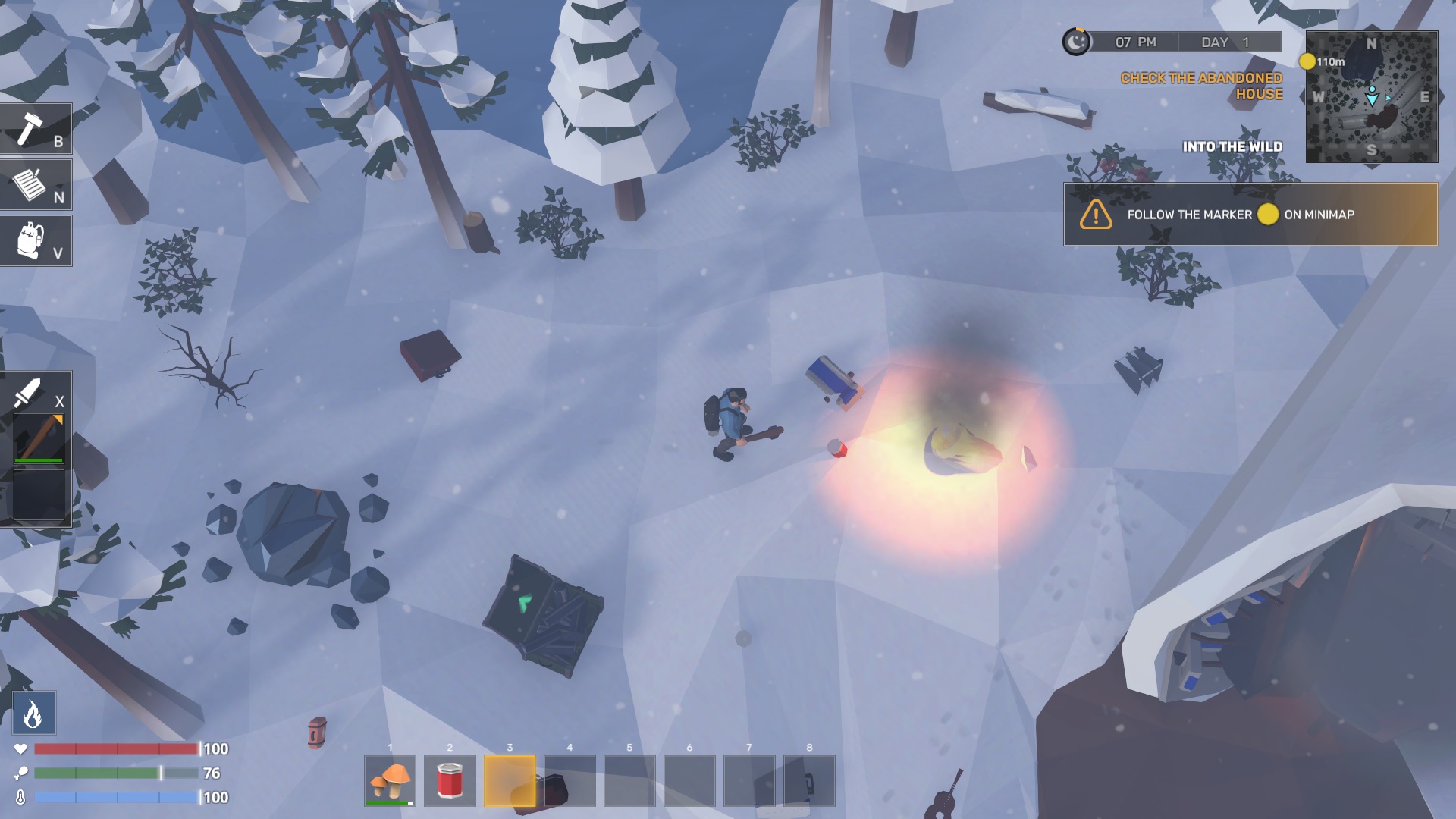
I kind of thought there might be more to this game, and maybe that was my mistake. "The Wild Eight" kind of sounds like there might be some dogsledding involved. The title screen displays an airplane which makes me think maybe there'll be some interesting story. But nope, it's just a very very basic survival sim. Nothing wrong with that, but also there's countless of these out there.
12) Endless Space 2
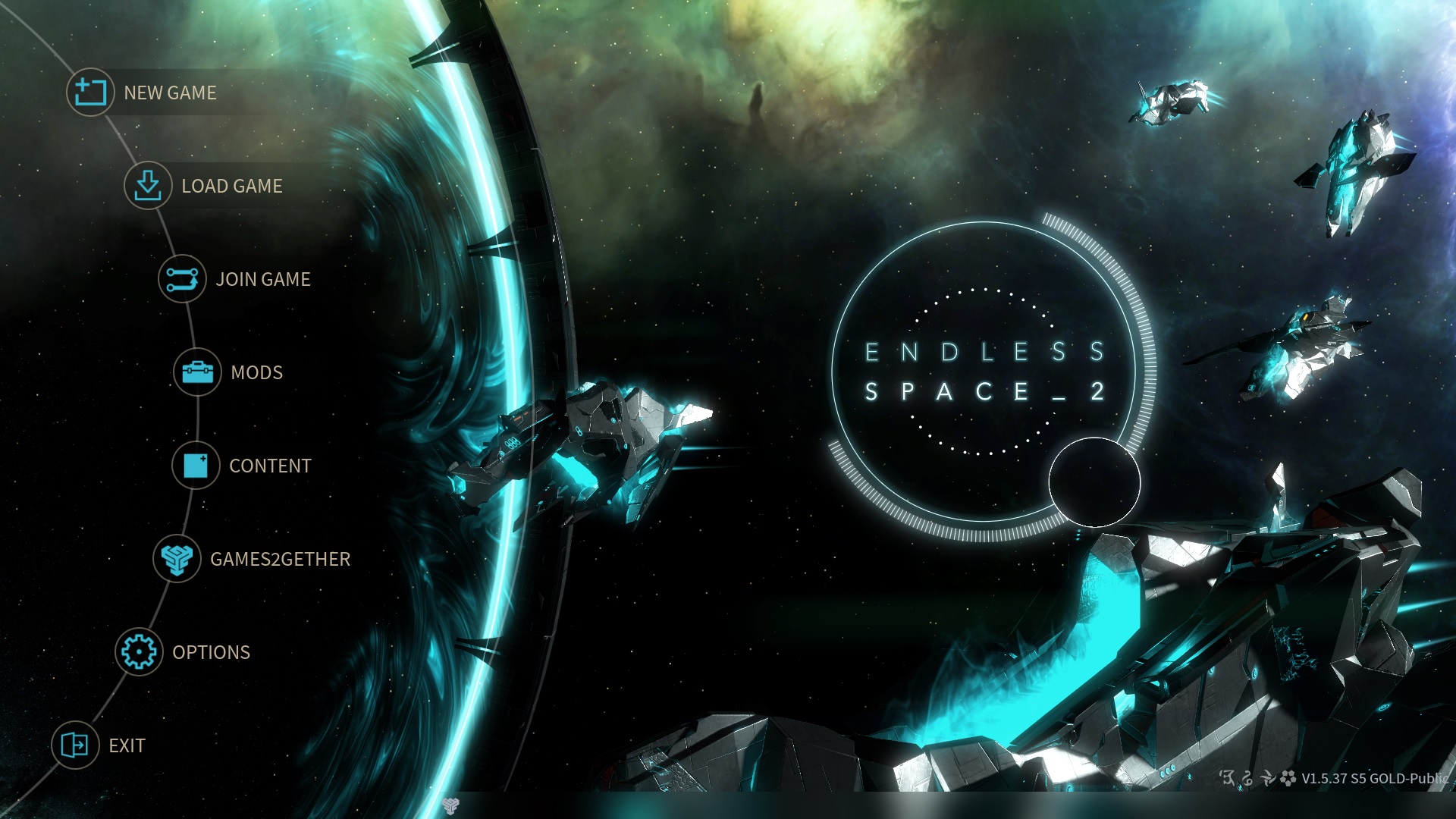
As with Valkyria Chronicles 4, I had to really struggle thru the cutscenes of this game, and I basically had to ignore the story and theming entirely to get any enjoyment out of it. Endless Space 2 is the game that made me consider ending the whole Humble project entirely, to give you a bit of perspective.
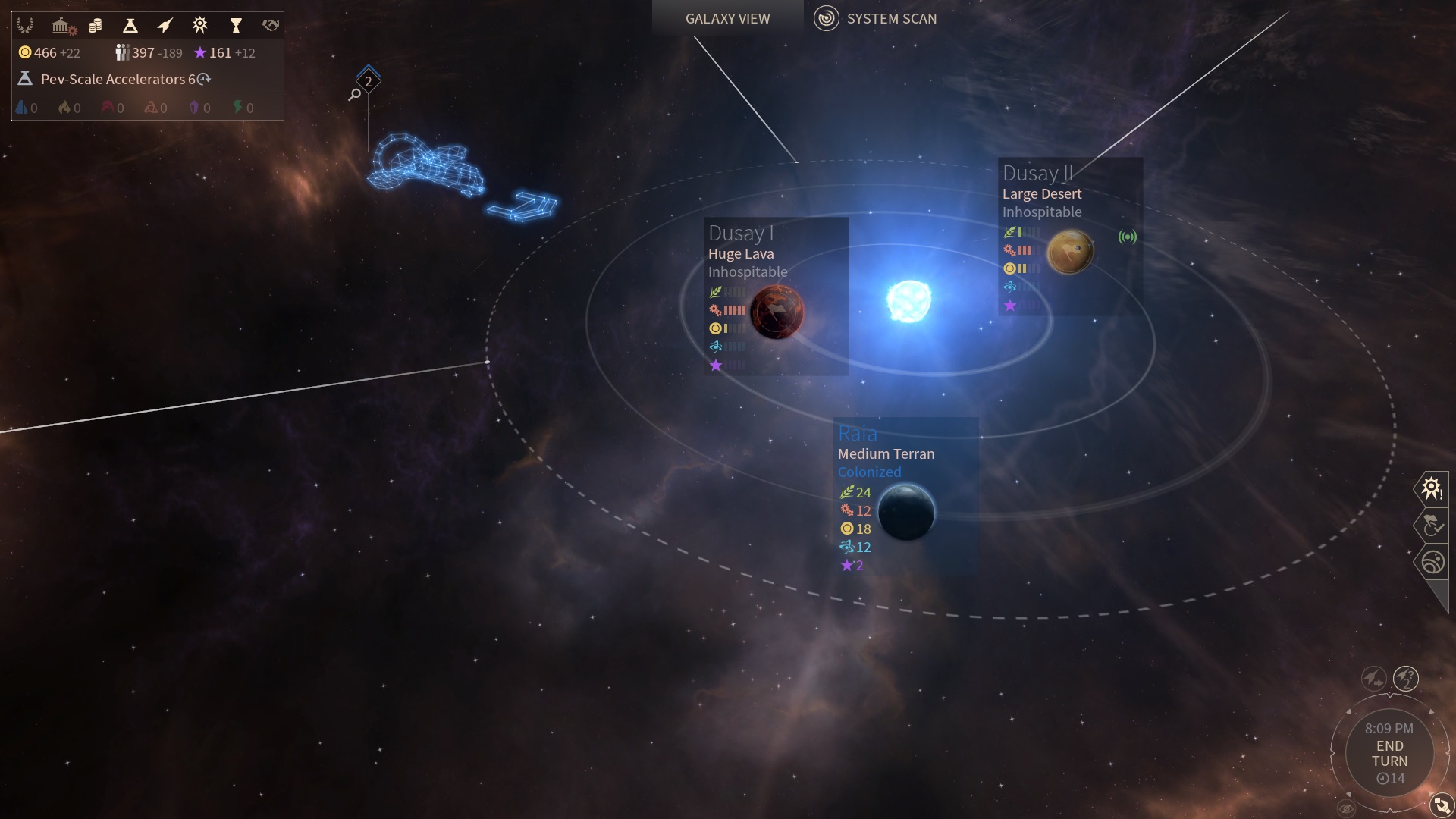
If you're looking for a really really boring version of Civilization, here you go. In Endless Space 2, you play an empire that's united its entire planet, and is now seeking to explore the cosmos. Your goal is to colonize planets, learn more about your galaxy, and slowly expand your reach.
This game is sort of startlingly imperialist. The opening cutscene is blatantly fascist propaganda. So that's sort of a weird angle. But even if you can ignore that, this game is so so much more menu-based than Civilization ever was. All the construction and progression systems are based in made-up words. You also never see the people you're ruling, just their ships, so it's a very impersonal game.
I don't really understand why you'd play this, unless you really really want a management sim in which you effectively play the evil Empire from Star Wars.
13) Moving Out
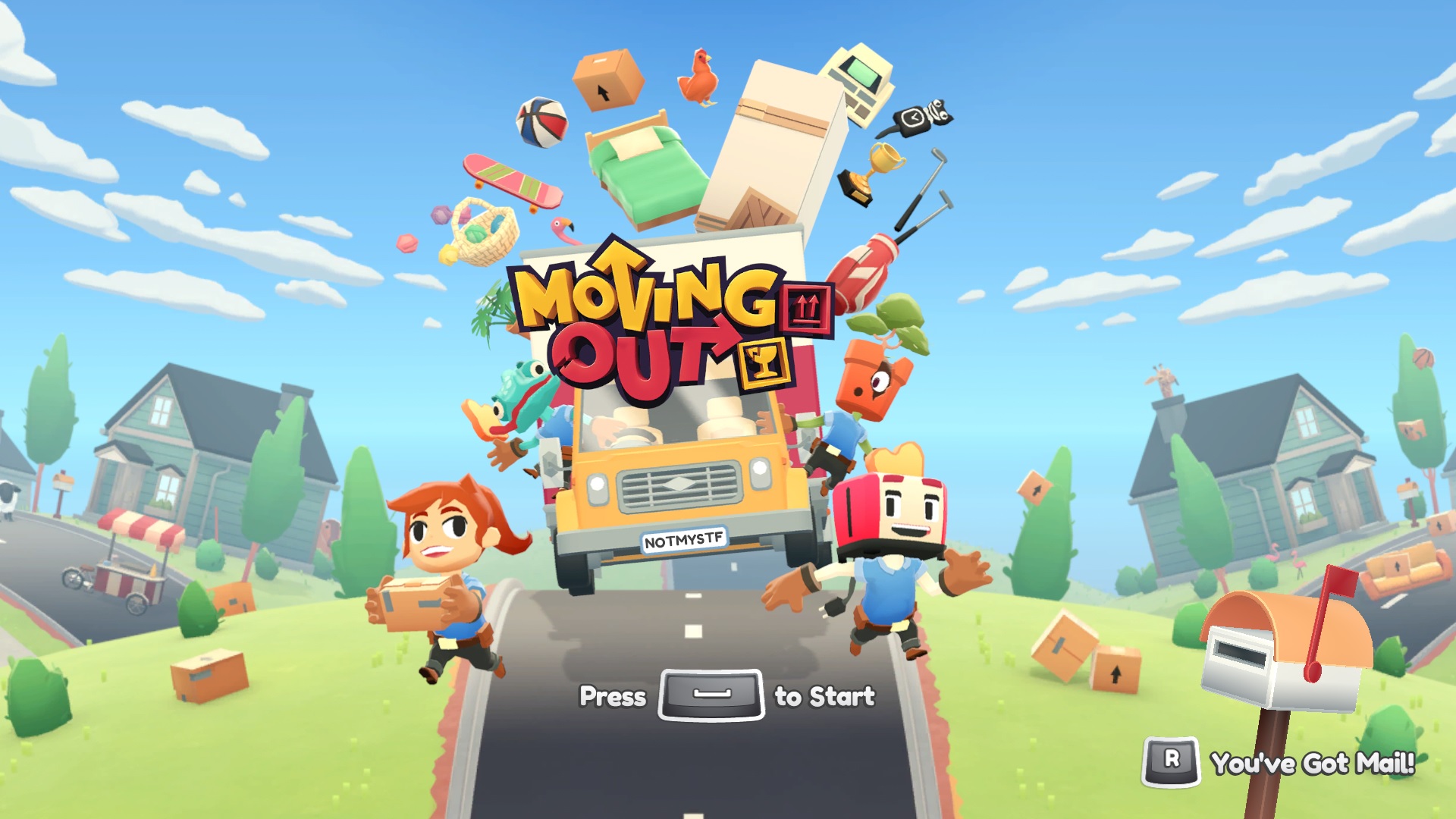
This game is absolutely terrible. Impressively so, even.
Overcooked is a very very popular game from the last few years. It's a co-operative multiplayer game in which you and your friends cook in a restaurant kitchen together. The physics are wonky and the controls are inaccurate, but wrestling with that is part of the game's fun. It's gotten a sequel and tons of DLC, along with a bunch of critical acclaim. It's not a huge surprise that somebody would try to copy it.
The basic idea behind Moving Out is "Overcooked, but with moving." You can see on paper why this was an okay idea. Moving is sort of a chaotic affair even before you add in a time limit, wonky controls, and physics that let you throw a couch across a room.
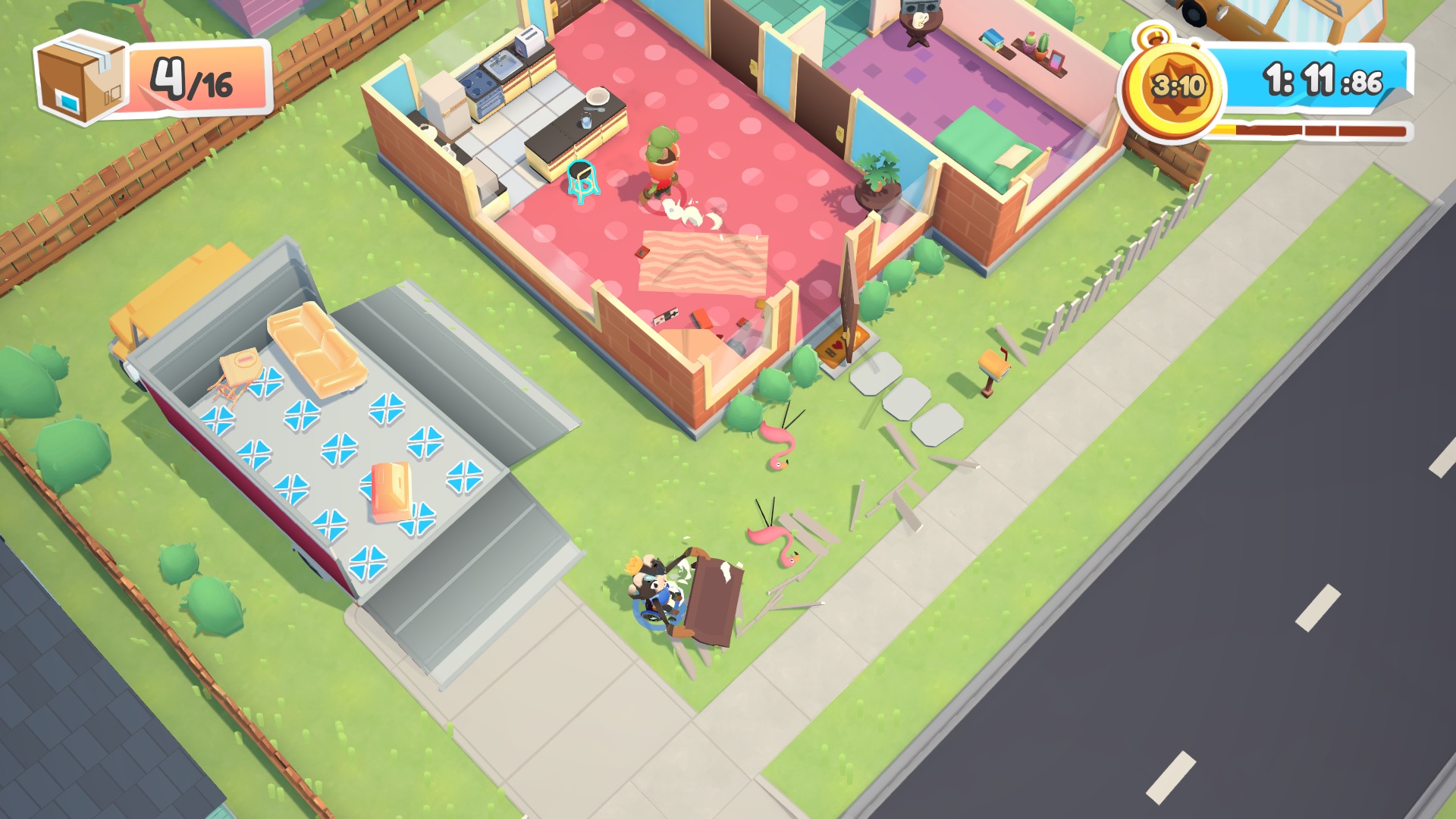
But it just doesn't work. The game's very buggy, for one thing. It took my girlfriend and me ages to successfully get a game started with each of us playing on half of the keyboard.
Secondly, there's just not much of a cooperative element to this game. In Overcooked, different people will take different jobs because of how spread out the resources are: chopping, dishwashing, cooking, serving, etc. Moving Out doesn't really have that. You move your own items until you get to a piece of furniture that needs two people, and then you ask your friend "hey come help me with this," and then you move it outside and go back to what you were doing before.
The basic goal of a level is to fit everything into the moving truck, and this is where the game really fails. Again, you can sort of see the logic, but the physics really don't let you place the furniture carefully at all. You just sort of throw it into the truck, and hope that once you get to the end of the level, you'll be able to slam the door closed.
This game was not fun at all. I've played hours of Overcooked, but my girlfriend and I played one session of Moving Out and we immediately decided that that was enough.
HUMBLE FEBRUARY 2016 BUNDLE
1) Alien: Isolation

Alien Isolation is one of my all-time favorite games. I first played it a few years ago, back-to-back with Resident Evil 7. Just, what an amazing pair of first-person big-budget survival horror games.
Alien Isolation has stuck with me more, tho. Maybe because I love the original Alien film so much. You play as Amanda Ripley, the daughter of Alien's protagonist Ellen Ripley. Amanda learns that a space station called Sevastopol may have information regarding her mother's disappearance, so she ventures there to find out. Of course the space station is overrun with xenomorphs and evil androids, and it's up to Amanda to find what she's looking for and escape unharmed.
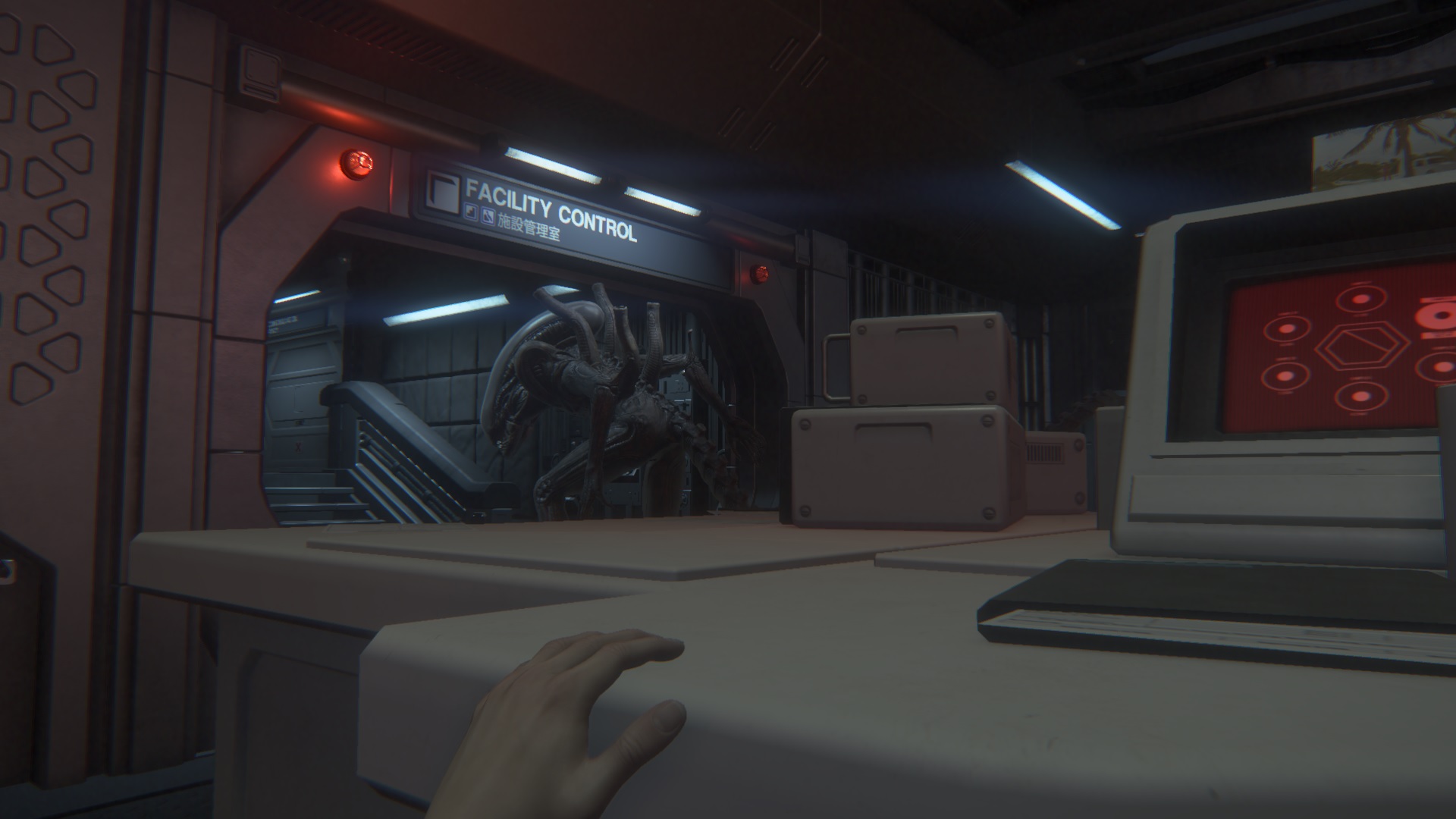
This game is now 7 years old and the graphics are still amazing. They really nail the look of a 70s horror movie. The gameplay itself is hard, but generally pretty fair. The alien's AI is really fun to play with; it feels like a dance, keeping an eye and ear out for it while trying to navigate around the station. At times, the game resembles a blockbuster action movie, especially towards the end, but the pacing is so good that it really deserves the ramp up.
I think the most impressive part of this game is how it programs you. The most interesting antagonist of the game is actually Sevastopol Station itself, a decaying wreck full of capitalist propaganda. This game is full of little contextual button prompts for mechanics like starting up a generator or welding thru a locked door, but they're repeated so often that you end up memorizing them, and rotely performing the tasks like you're a worker on Sevastopol yourself. It's one of the most fascinating reactions to a game I've ever had, and really resonates great with the anti-corporate story.
2) Broken Age
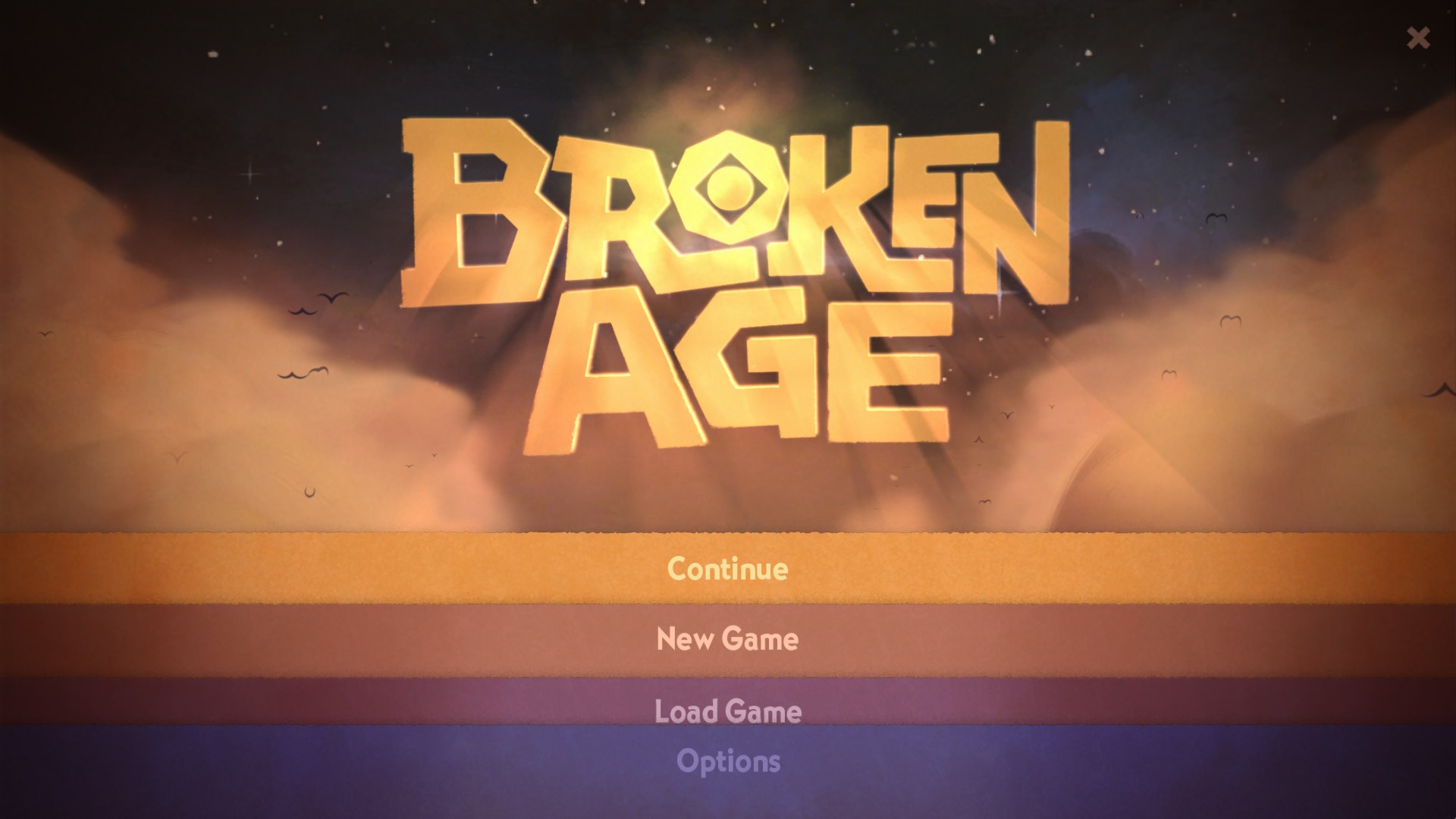
This game received a pretty mixed reception when it first came out. And I'm not really surprised. Broken Age had an enormously public development and was extremely highly anticipated. This was Tim Schafer's big return to 2D adventure games. The stakes were high.
Broken Age is no Psychonauts, Schafer's story-heavy 3D platformer that deals with mental illness in interesting ways. In the realm of 2D adventure games, it's certainly no Monkey Island, but Schafer was never going to be able to make Monkey Island twice. But on its own terms, I think this works great.
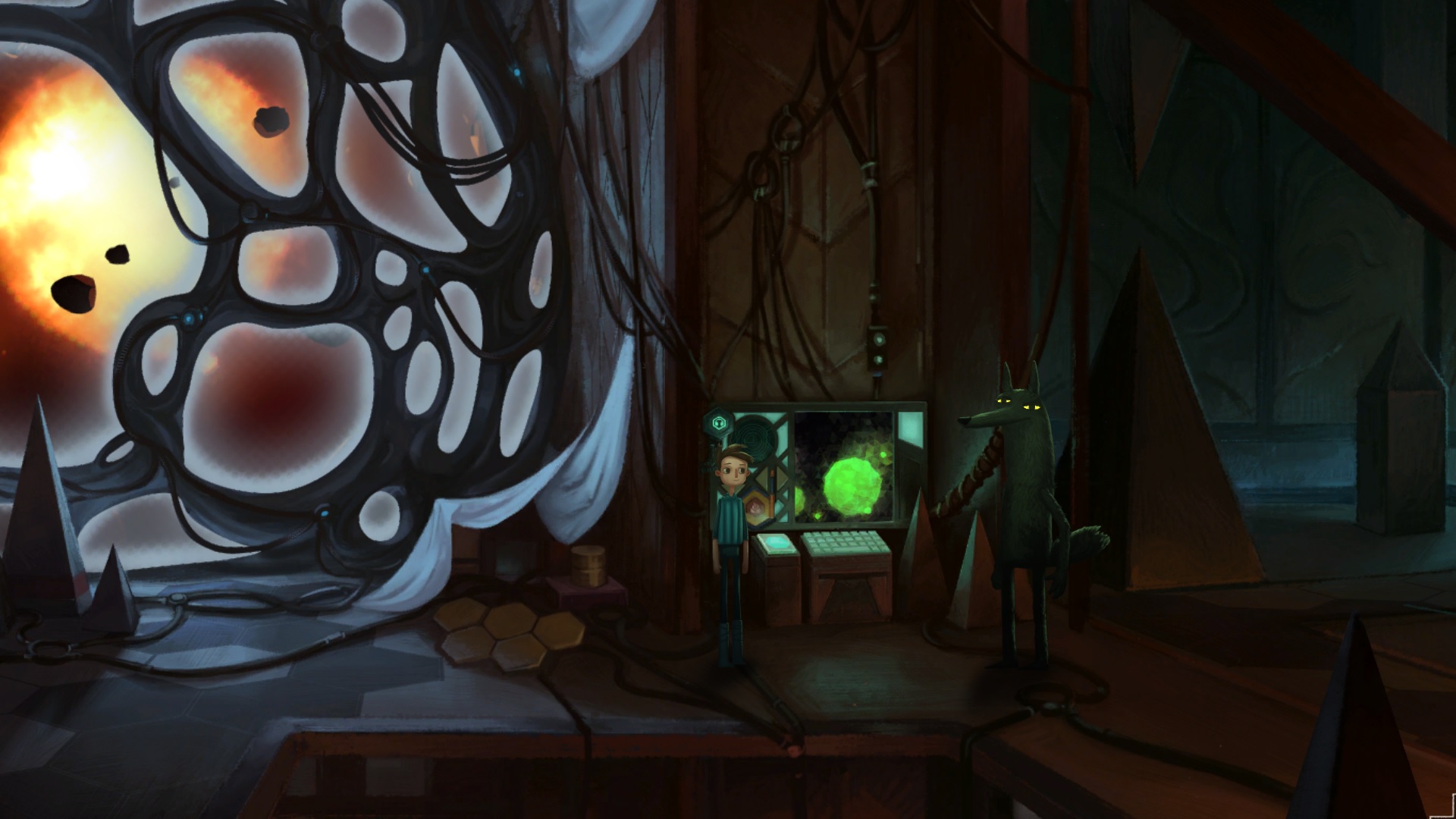
I think the story of kids trying to break out of the abusive cycles their parents inflicted onto them is still really relevant. I think the gimmick is great: both characters have their own self-contained stories and environments in the first half, and then they switch places, leading to interesting new puzzles and interactions in the second half's remixed areas.
The last big sequence of the game is still a pretty bullshit puzzle, to be sure. And the gameplay can be a bit linear. But I enjoyed this enough to finish it years ago, and I think it still holds up well.
3) Penarium
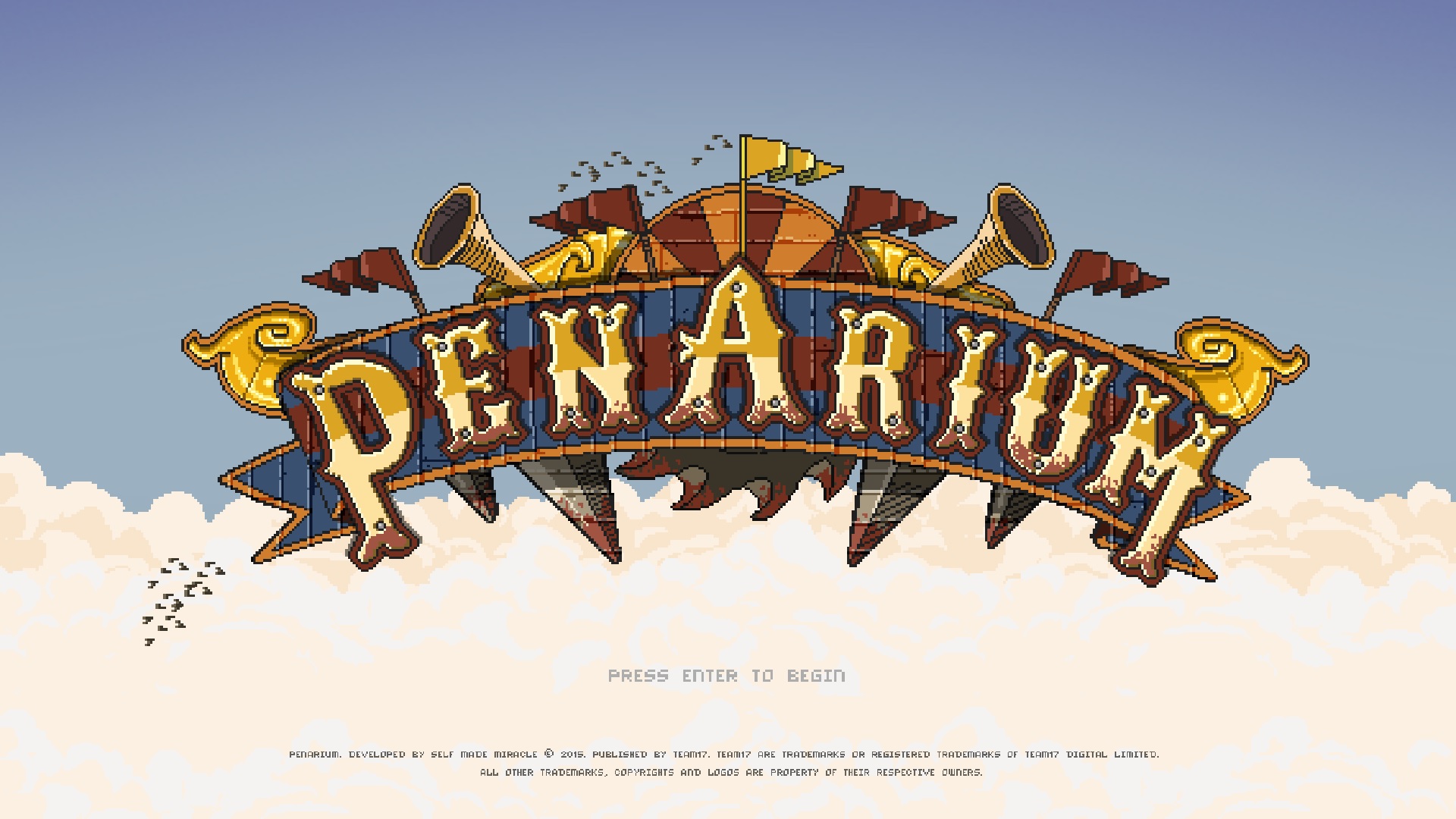
In Penarium, you play a boy who runs away to the circus, but finds himself in the middle of a performance, where he's forced to gather barrels and avoid deathtraps for the audience's amusement. It's a pretty dark concept!
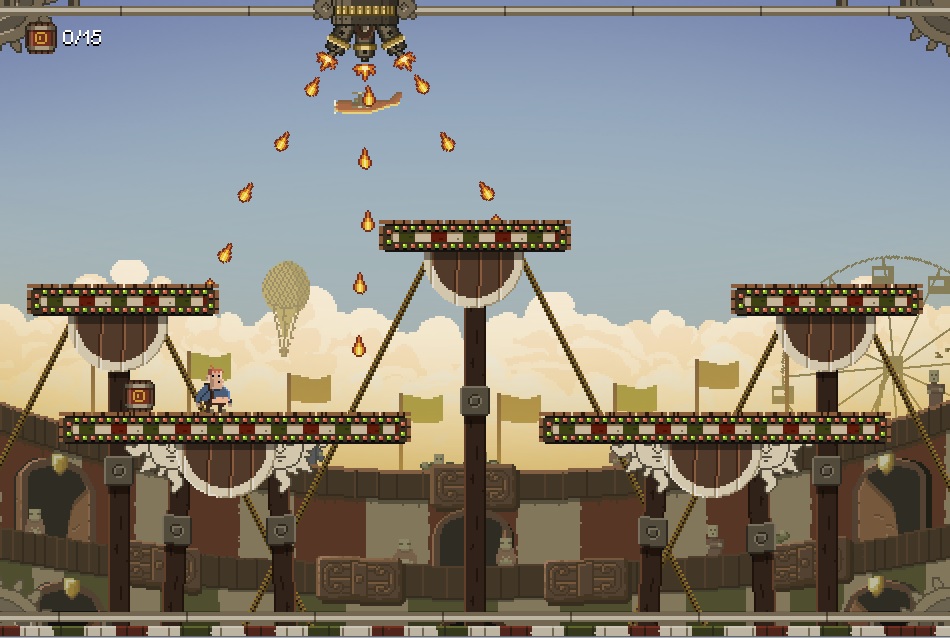
It's also intensely addictive. Once you die, you restart the level immediately, and levels are quick enough that it's pretty easy to fall into the rhythm of trying to get just a little bit farther every time.
There's a story campaign if you want that, but it's really just steadily increasing challenges on the same screen. And I can get behind that. This game knows what it is.
4) Volume
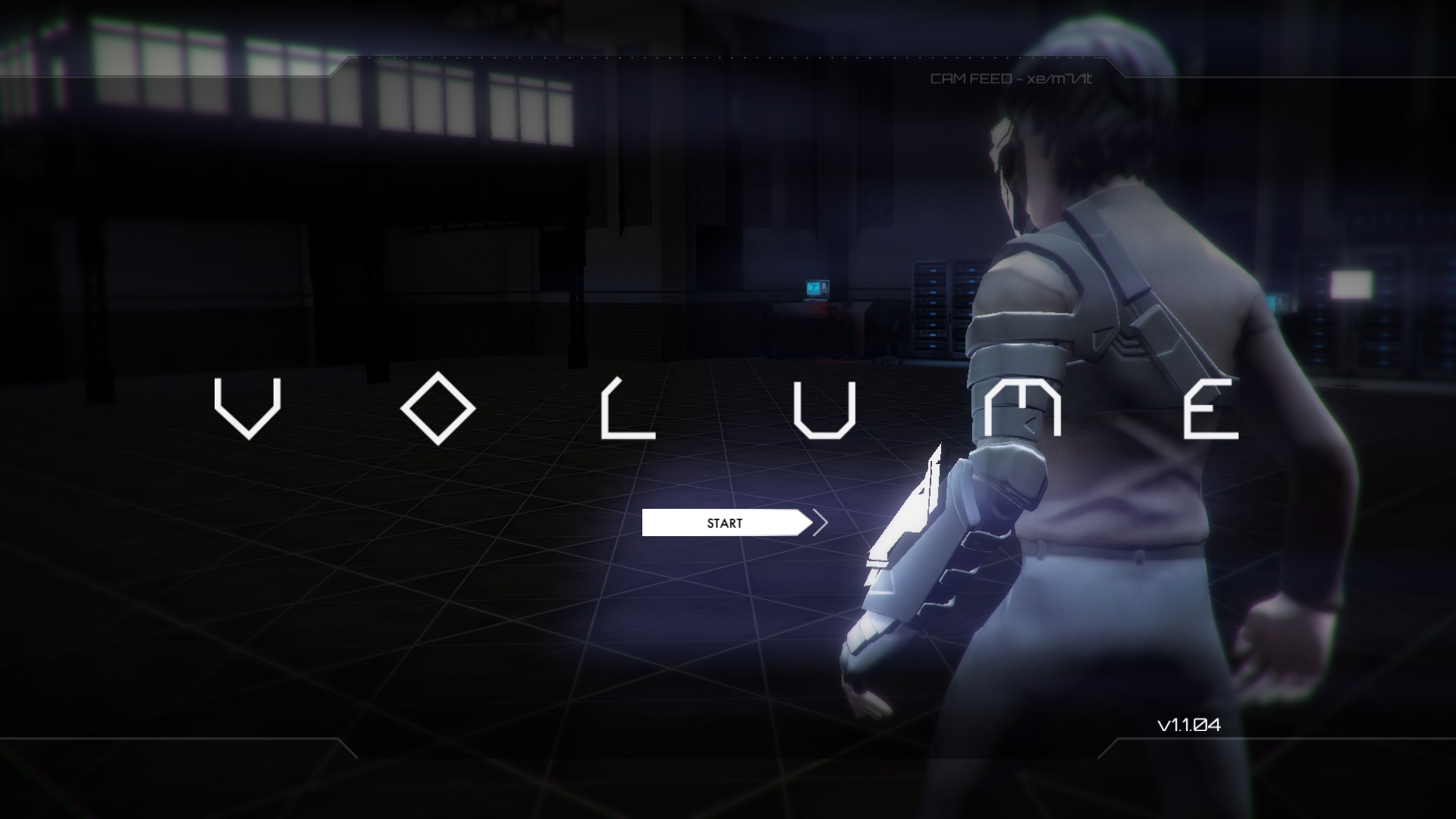
In Volume, you play as a nerd at a computer, so we're not off to a highly original start in the character department or anything. The story, in which you've "borrowed" a military training computer and use it in VR simulations to plan heists, is really just an excuse for level-based stealth challenges.
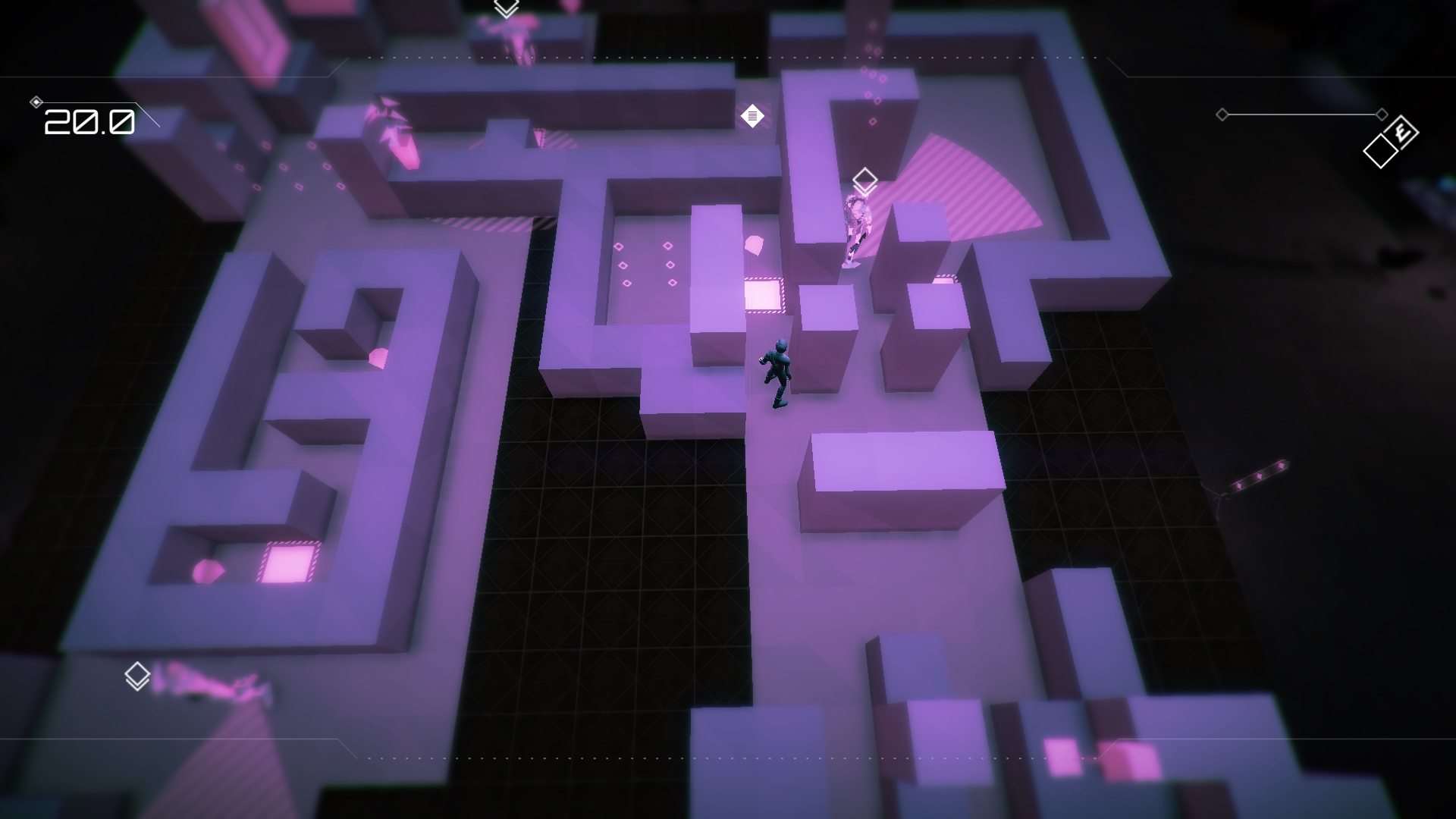
Nothing wrong with that, to be fair. I like a good stealth-em-up. But even tho there's more meat on the bones here than in Penarium, I think this game gets a little repetitive pretty quick.
I'm reminded of Quadrilateral Cowboy, which had the same premise, but a completely different gameplay loop in which you programmed your way thru the levels. That was an absolutely fantastic game, and by comparison this is... about the bare minimum of what you'd expect from a stealth game. Not bad, but not very interesting.
5) Dropsy
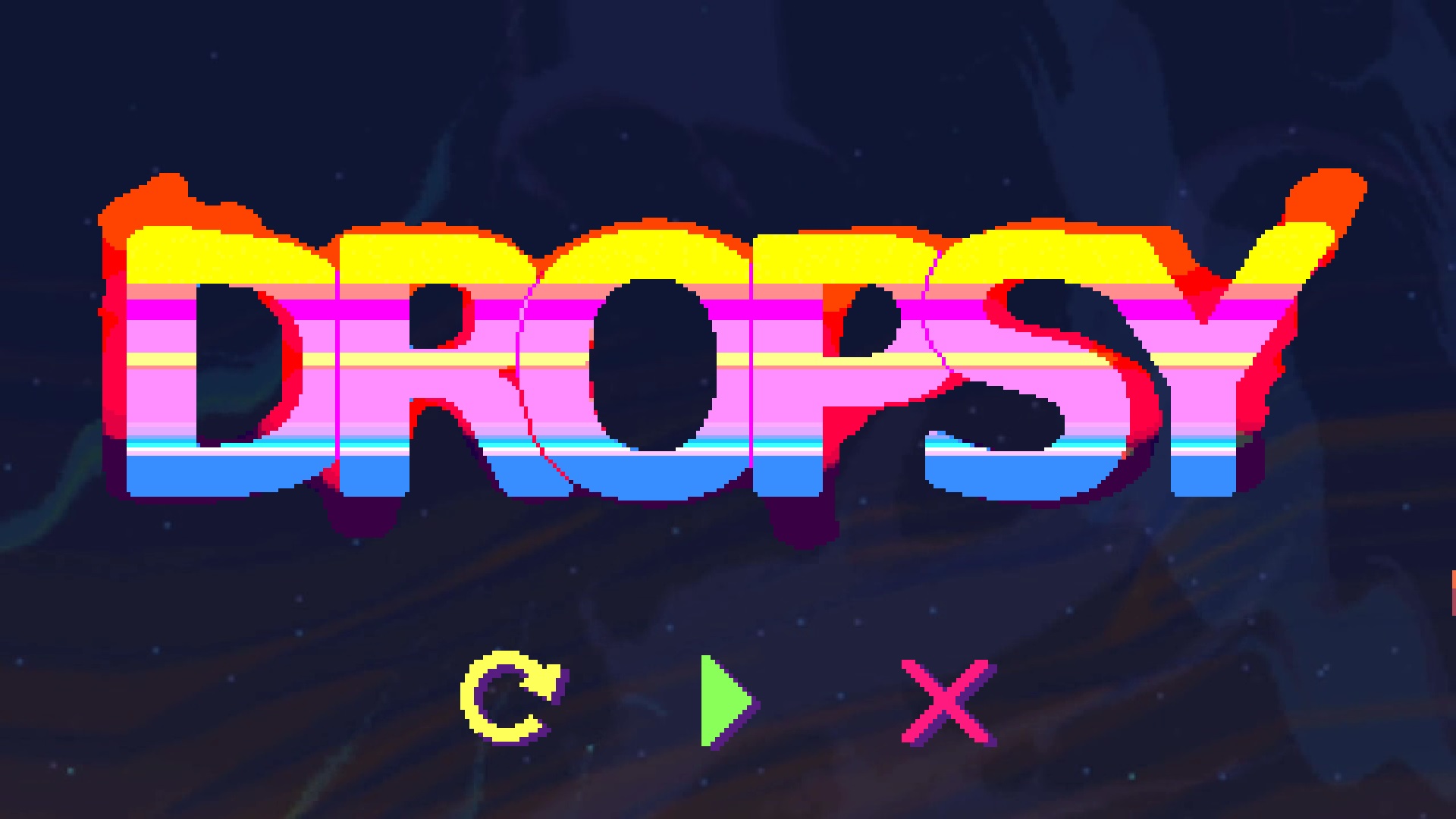
I'm giving Dropsy some points for being innovative. The whole premise of this game is "what if an adventure game had no dialogue." Your clown player character, Dropsy, only communicates in emojis. So does everybody else around him, or maybe that's just how he understands everybody.
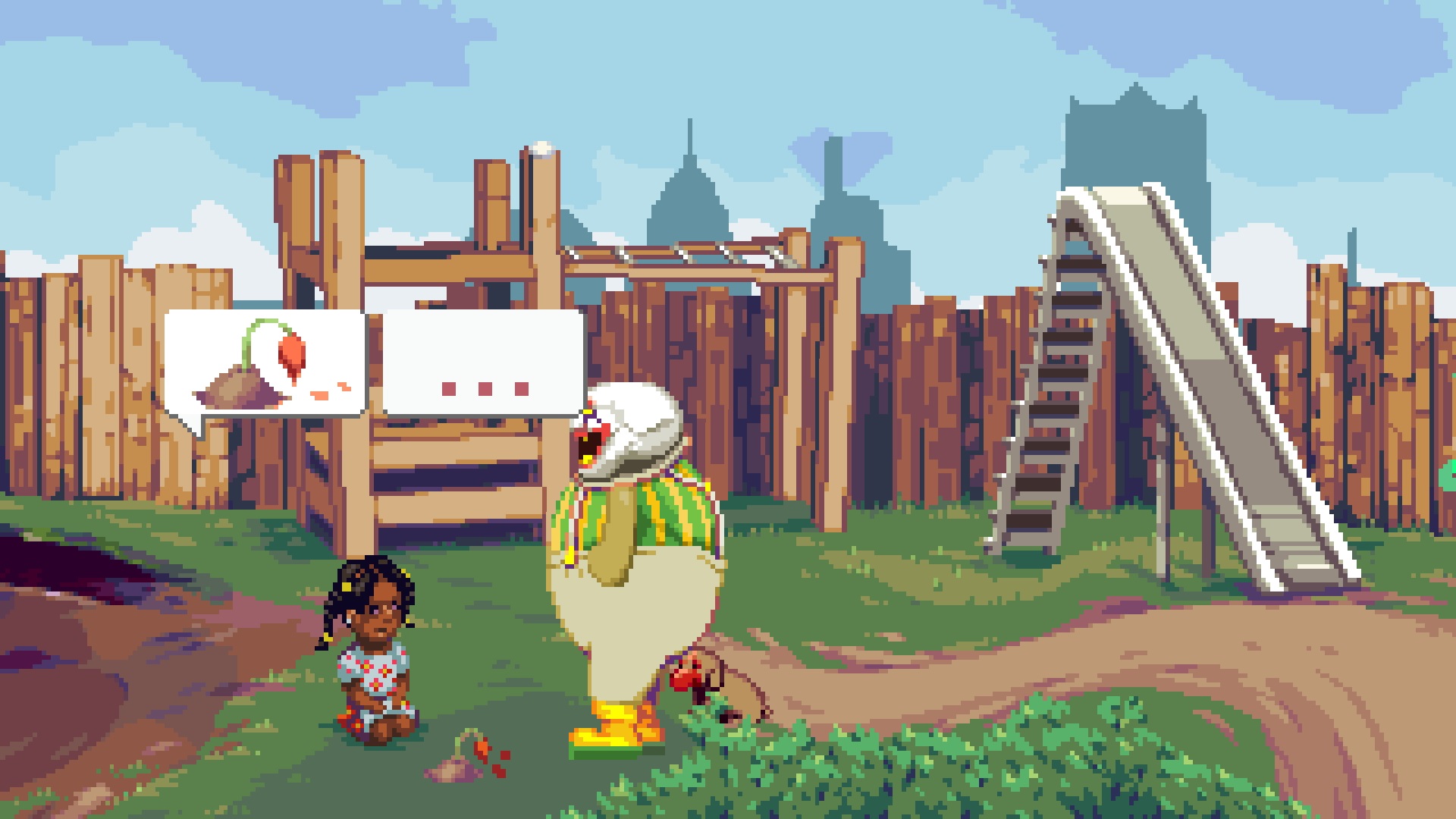
Other than the title screen, there's no text in the game anywhere, not even in the menus. Again: very ambitious. Not particularly easy to play, tho. Part of the struggle of this game is figuring out what's going on. If that's your thing, this game could work really well for you, but I didn't find much to stick around for.
6) Elephant in the Room
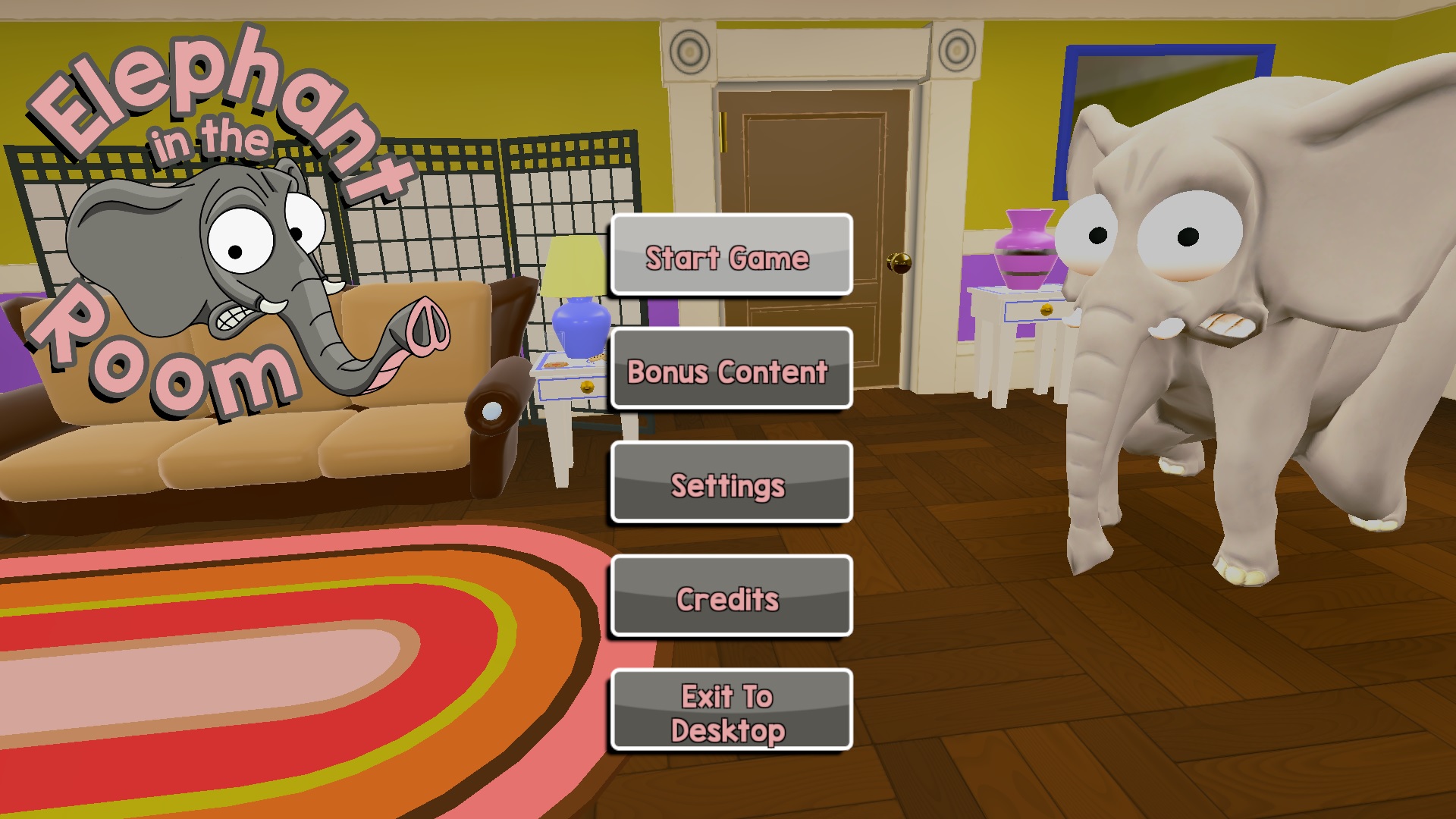
The Humble Original for this month (the first one ever, in fact) is a very basic game in which you play an elephant sneaking its way around a house and trying to escape. Interestingly, you don't fail the mission if you get spotted. You fail if somebody spots you and then runs to tell somebody else about it. Cause they're discussing the elephant in the room, get it?
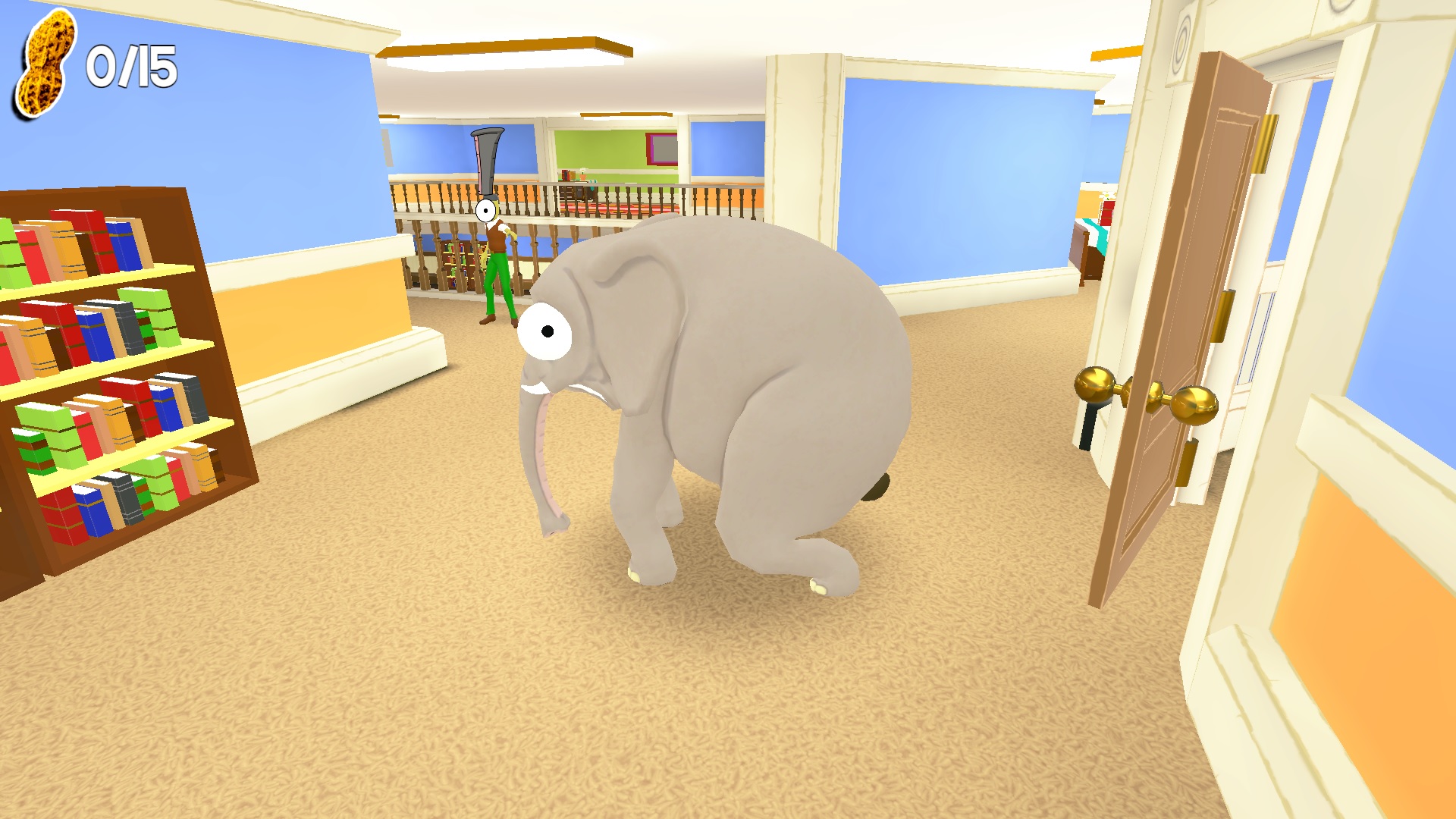
It's a cute idea, but it's quite difficult. There's a bunch of people all sitting around the main lobby, and this isn't like Hitman where they're patrolling in a certain way so that you can sneak around them. You're invited to make noises and lure them away, and then hope they stay away long enough for you to leave. It's not a very elegantly designed videogame.
7) Titan Souls
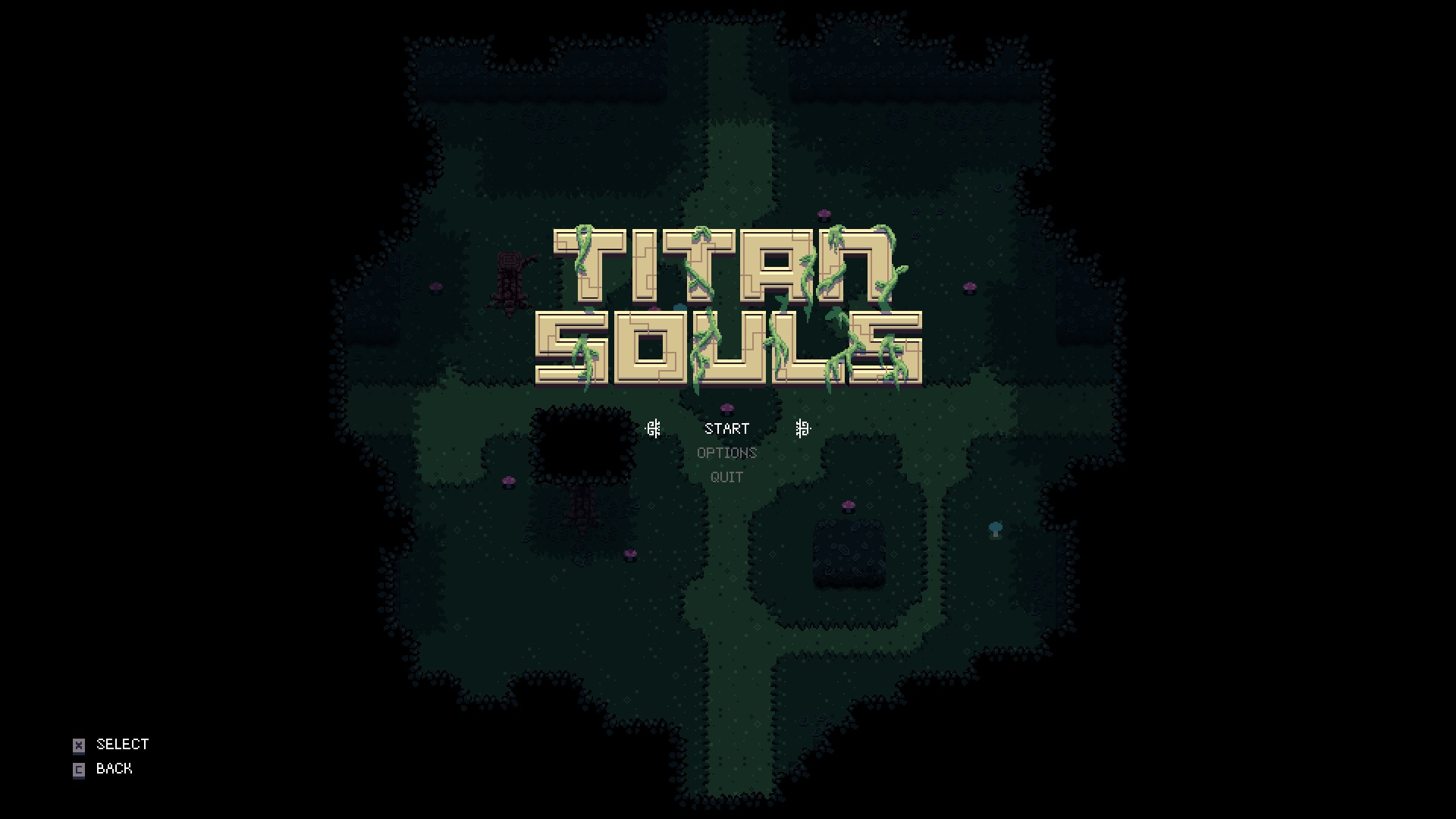
Here we are, Titan Souls. How far the mighty have fallen. I think this game was really well received, years and years ago. Certainly I remember it being... at least intriguing, although I never got very far. This is a pixelly indie game, very much in the style of early indie games like Fez and Superbrothers, in which you play a small warrior with a bow and arrow, trying to destroy several bosses. There is no level design outside the bosses. It's just a boss rush game.
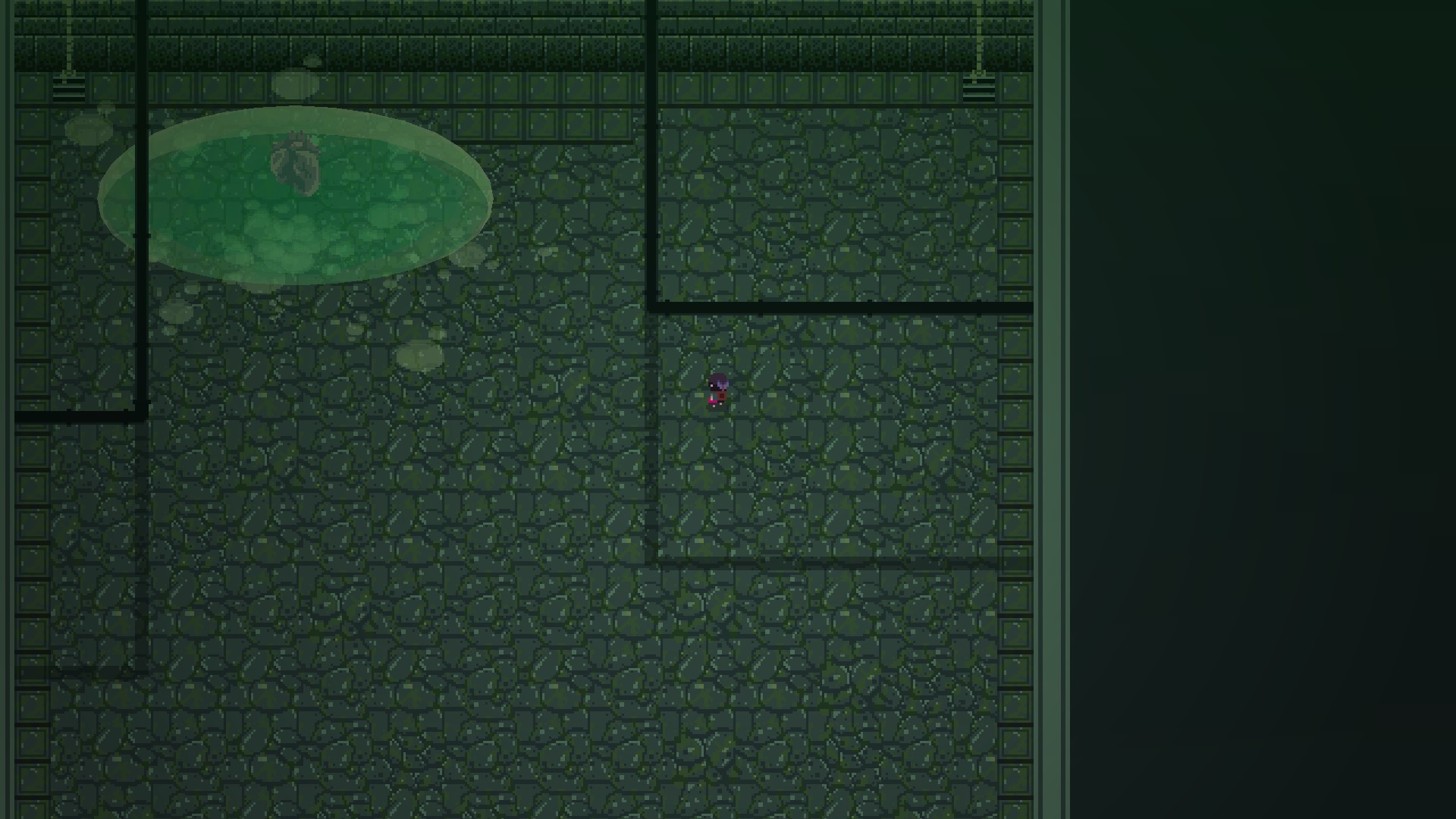
So those bosses gotta be pretty well-designed for this to work, and let me tell you, I could not finish a single boss in this game. Your movement controls don't work great, and you have to summon your single arrow back to you every time you fire it. You also only have a single hit point; if you get hit once, you die and have to try the boss again. If you're really good at boss fights, this might be for you, but it's way too difficult for me.